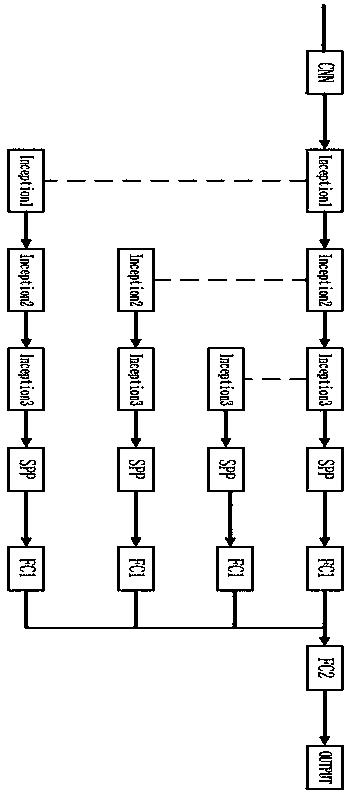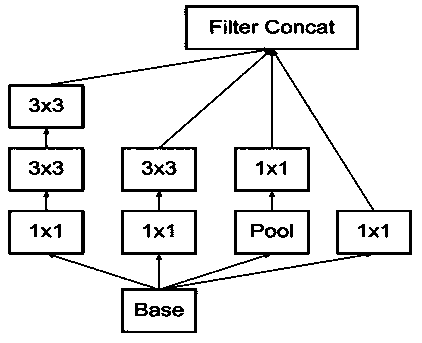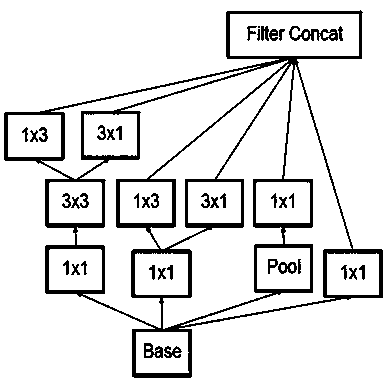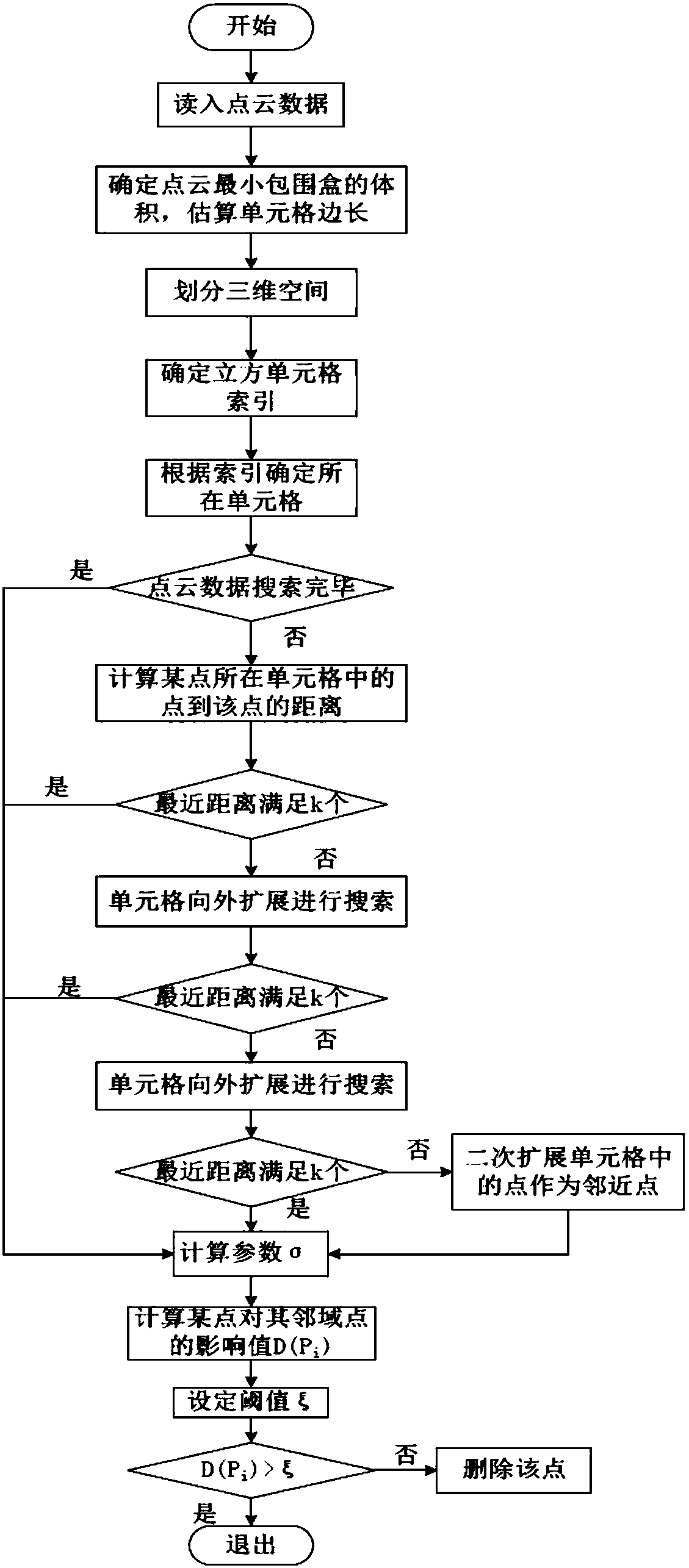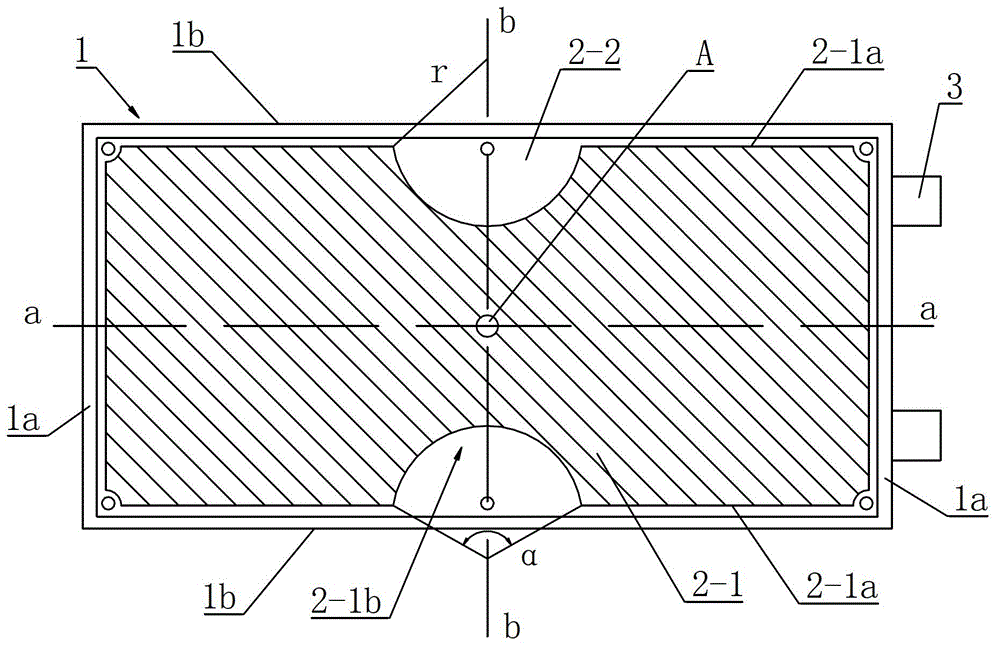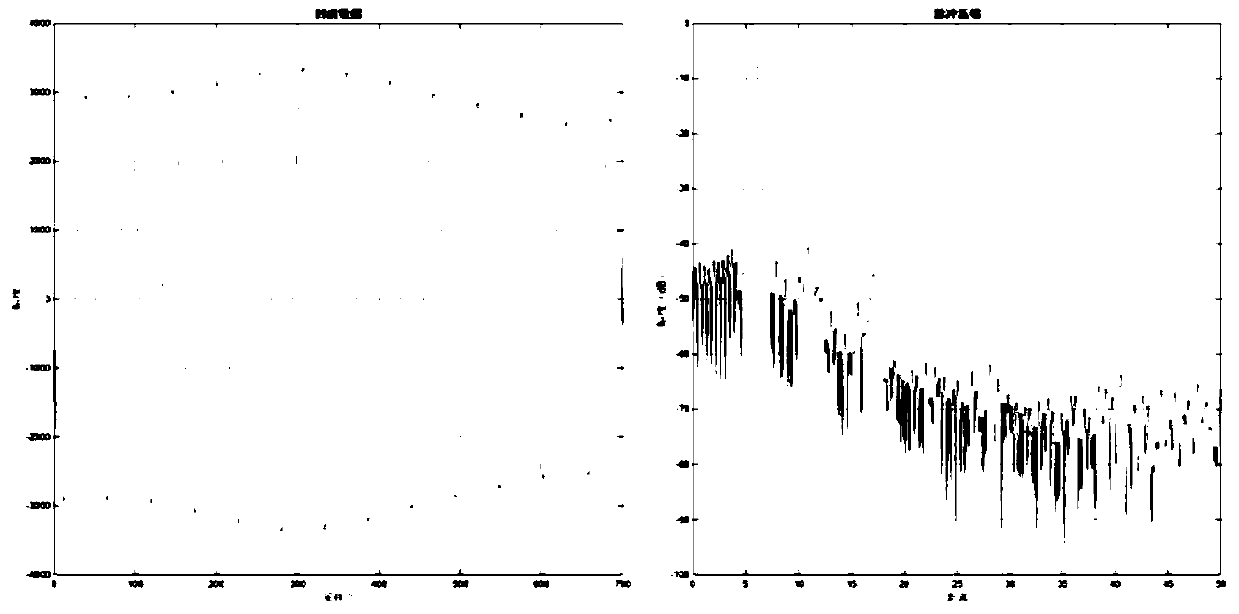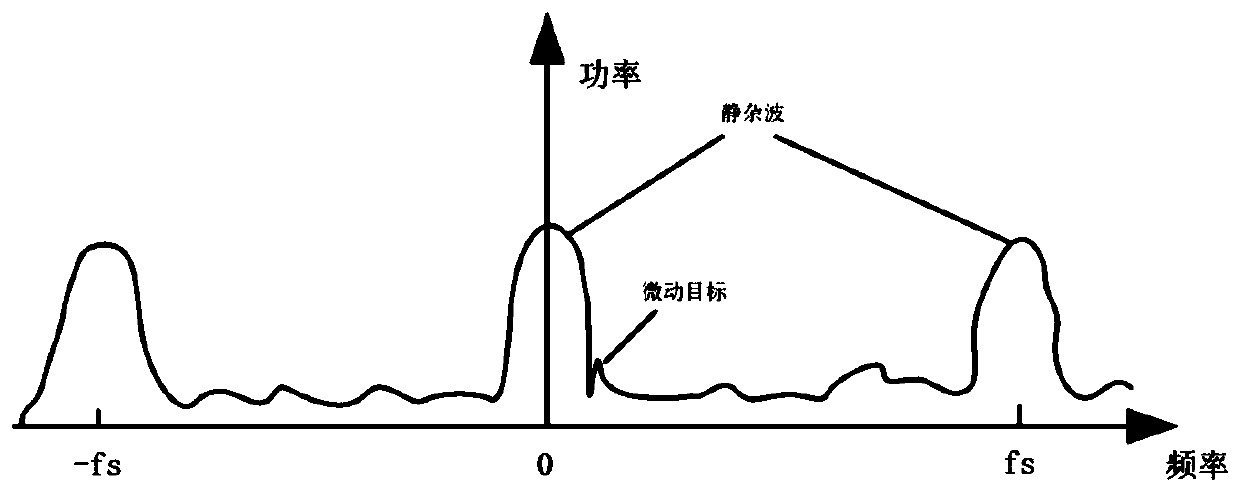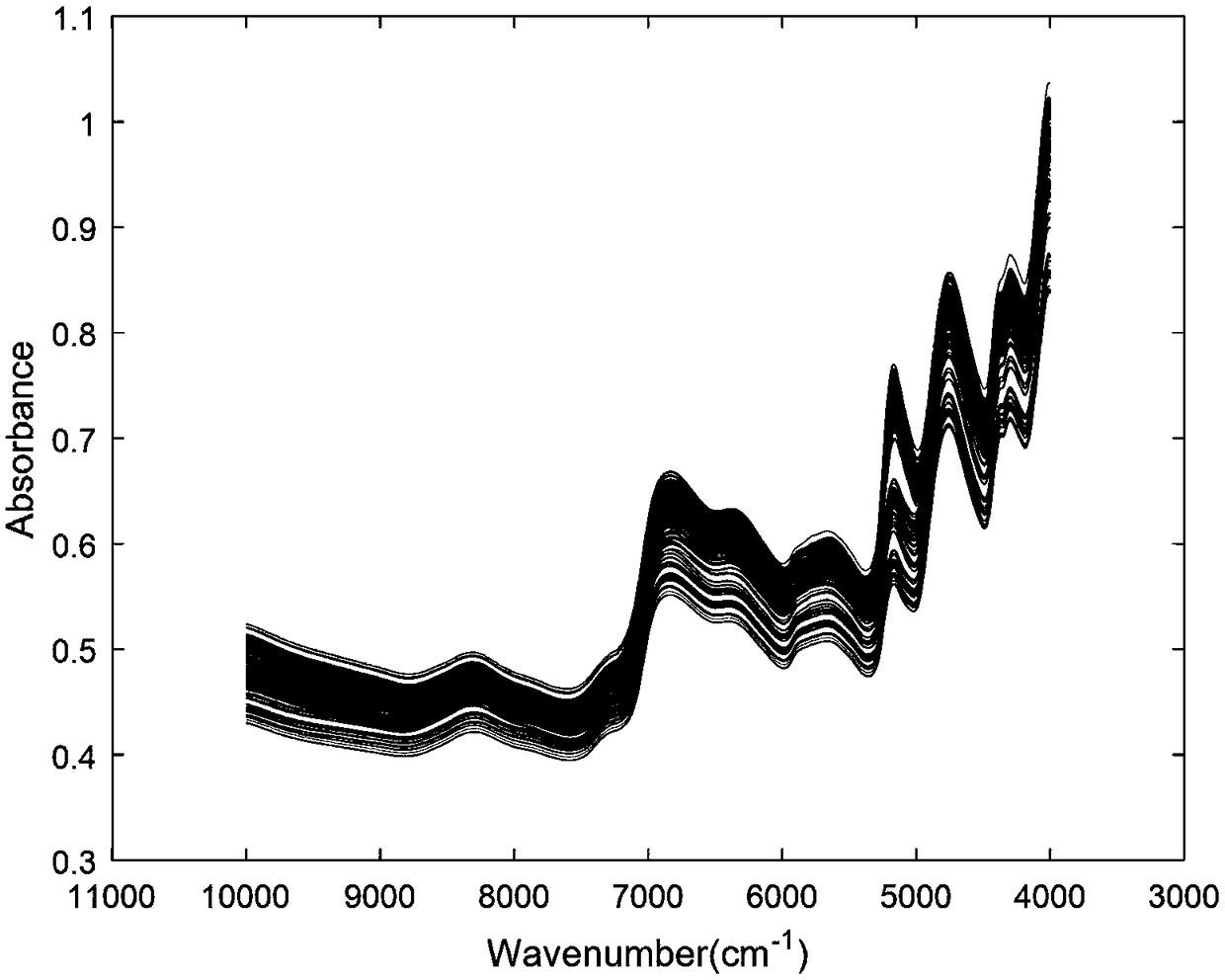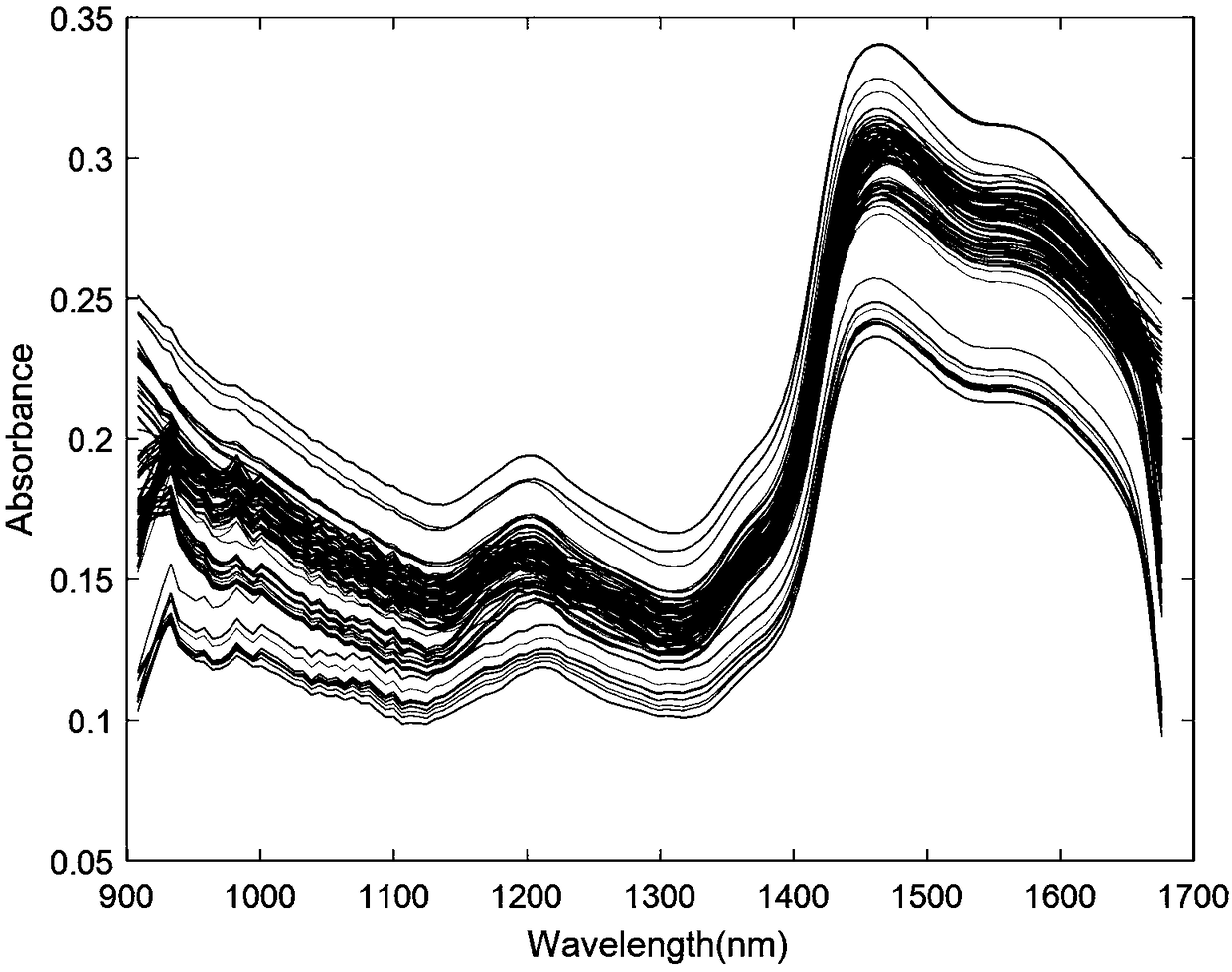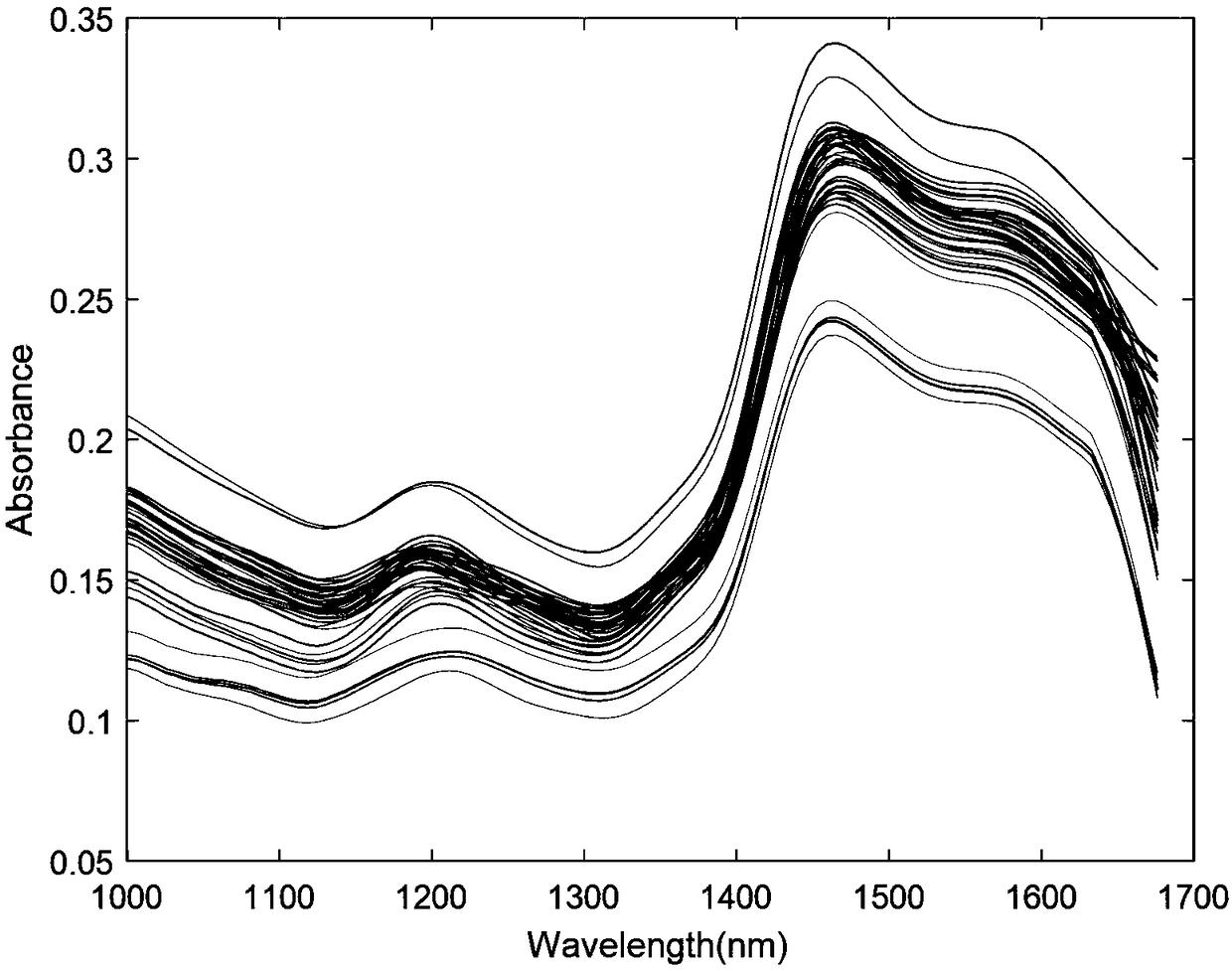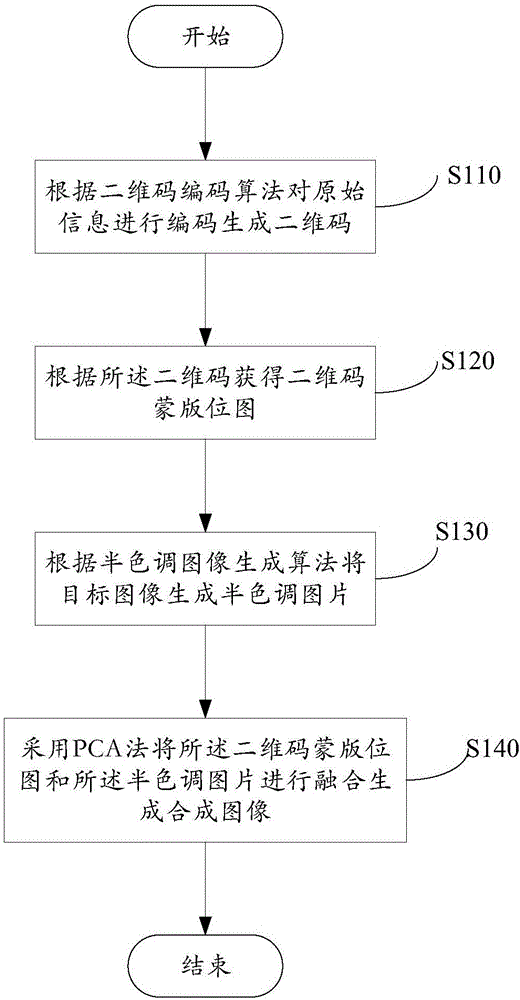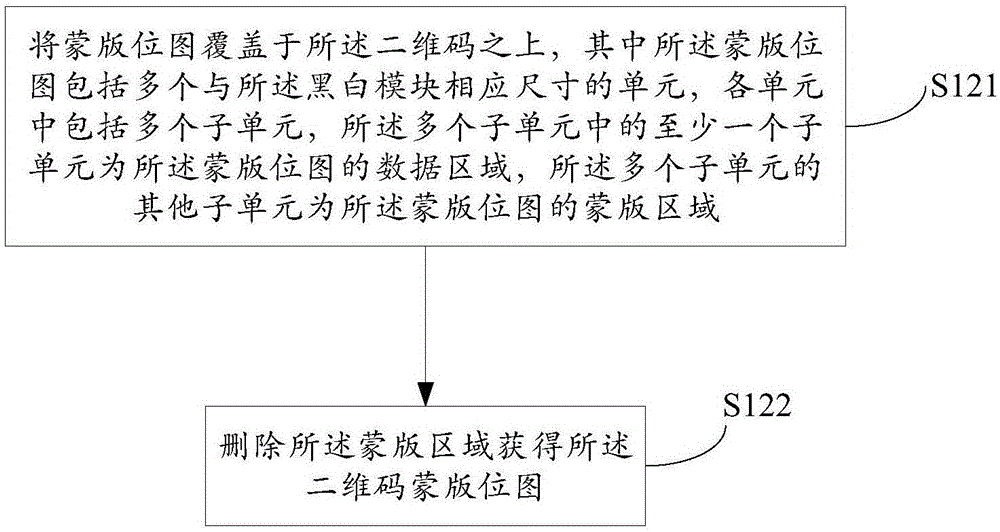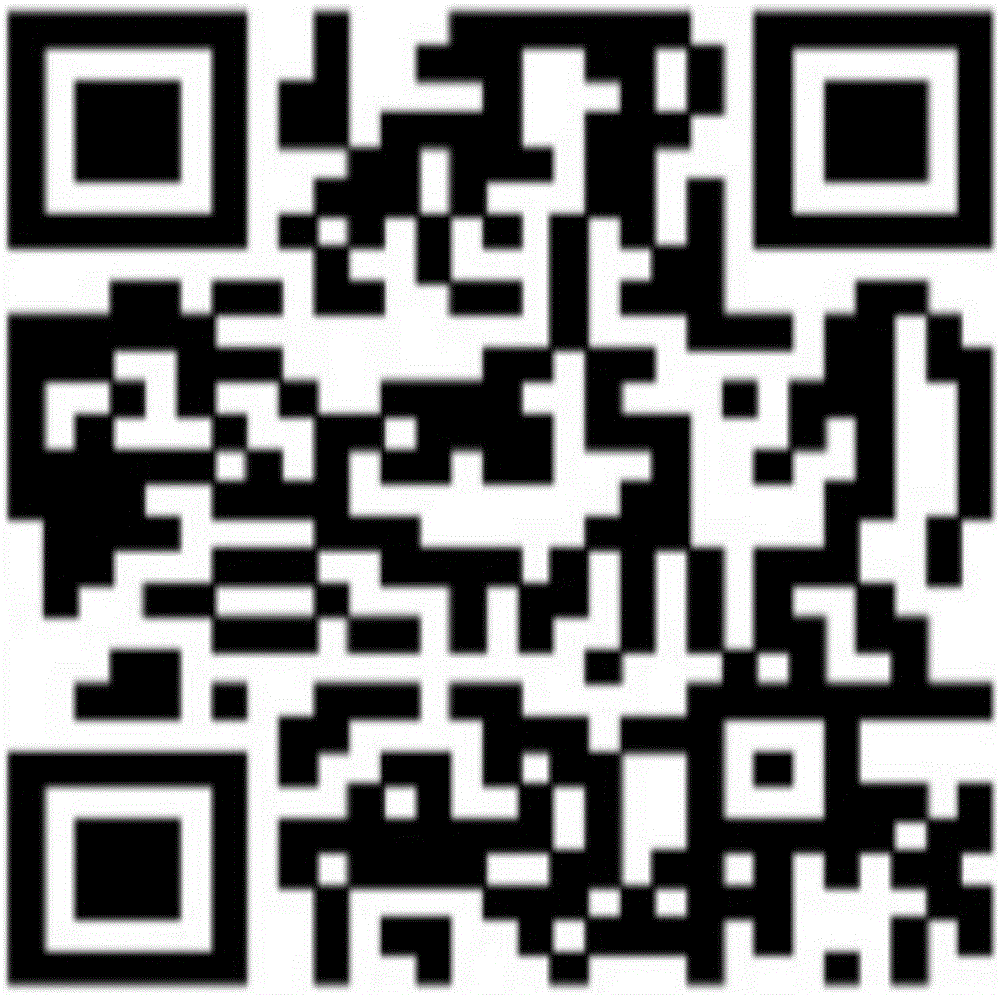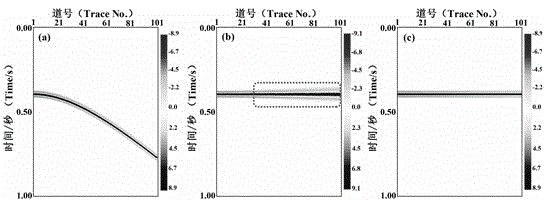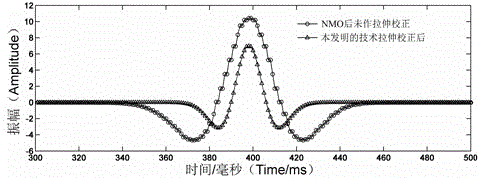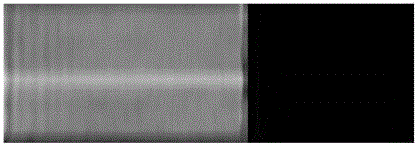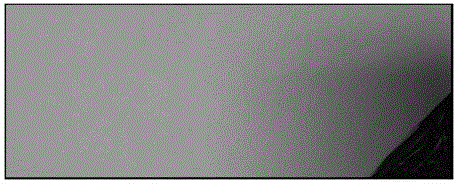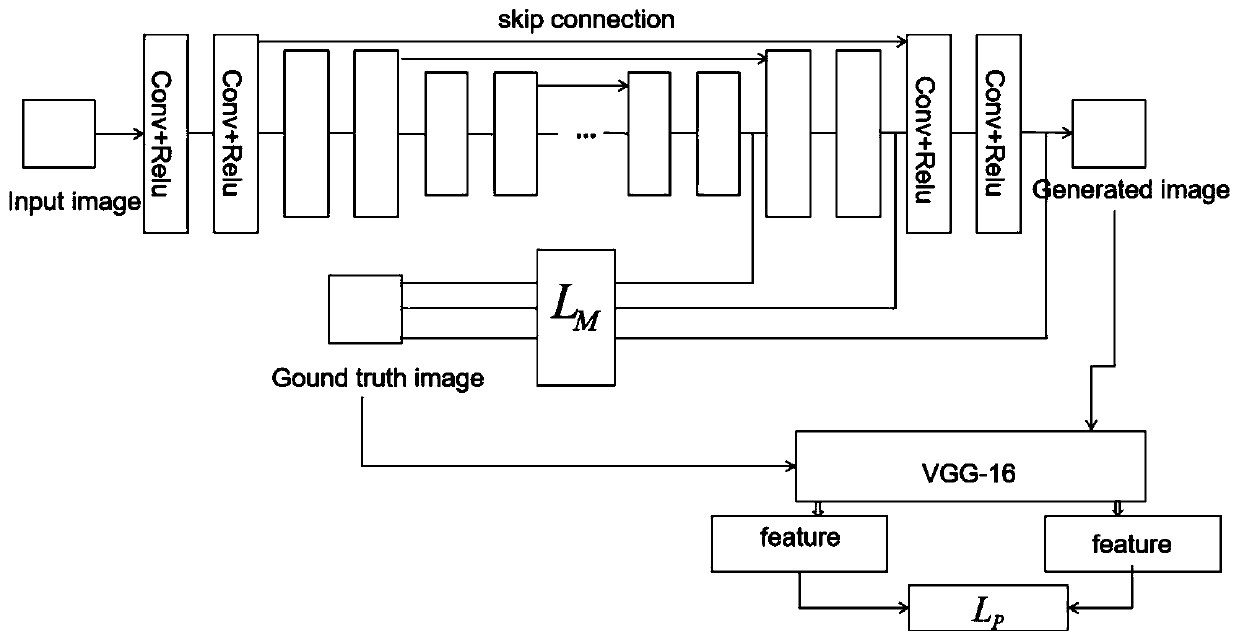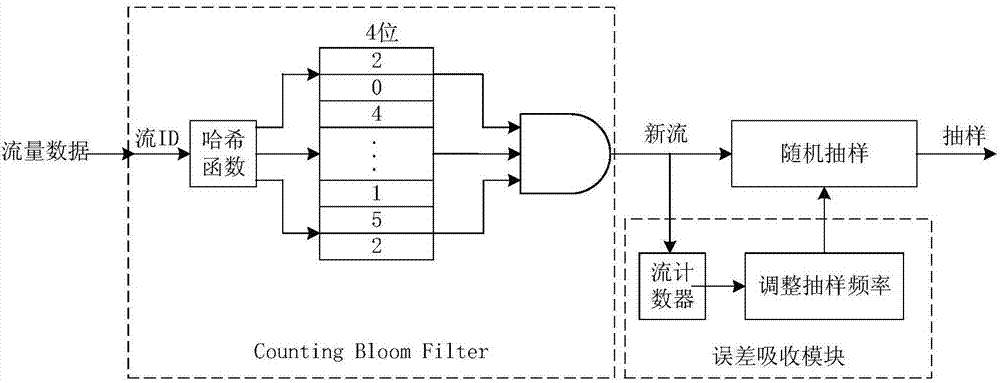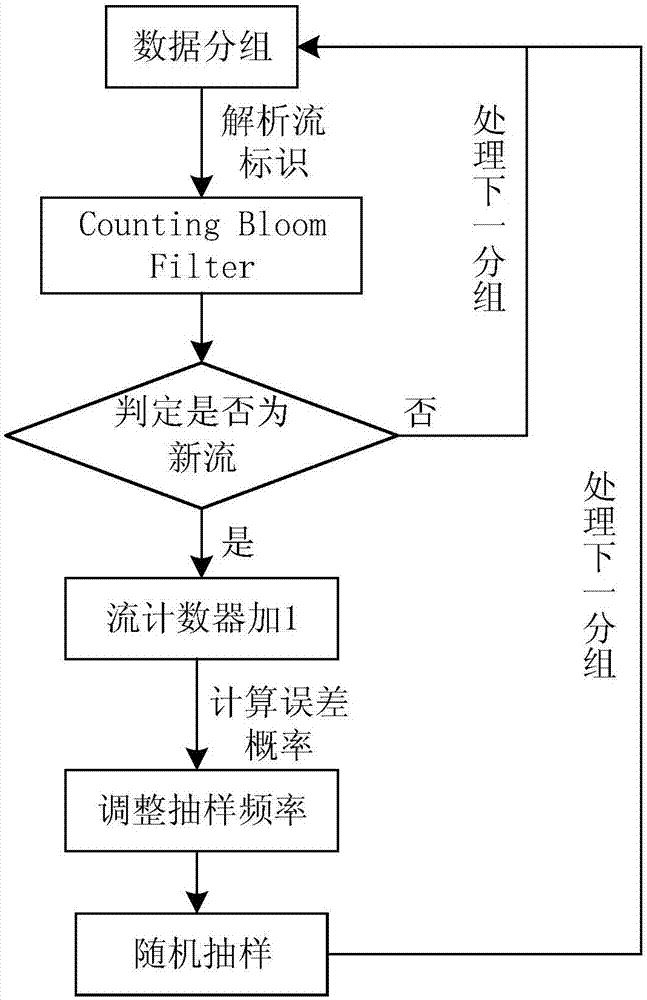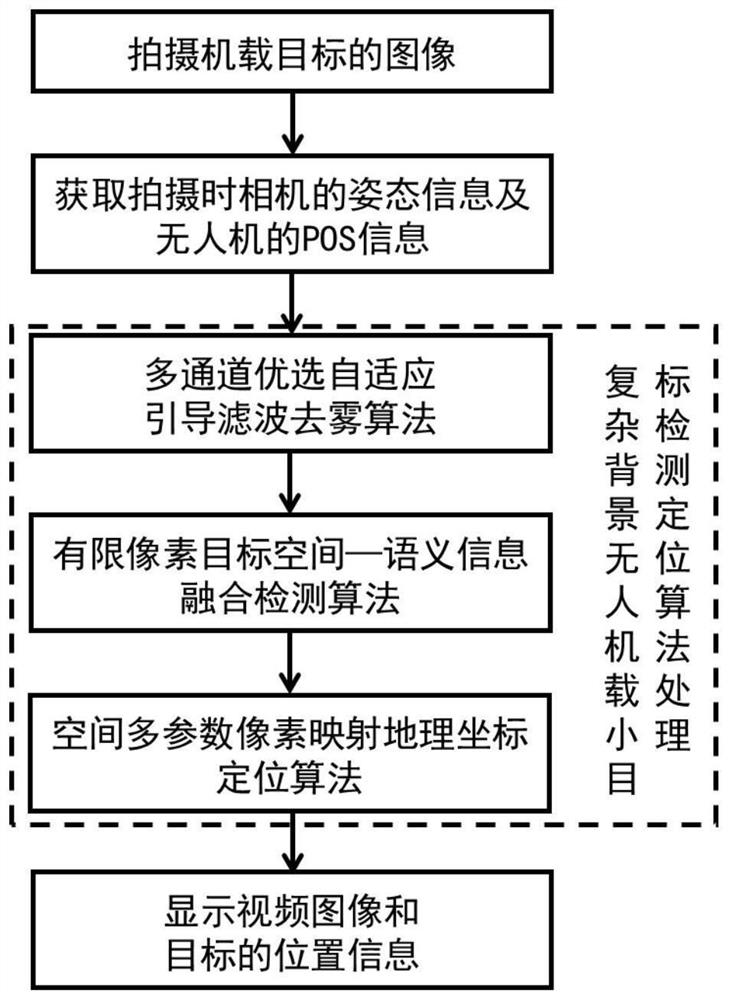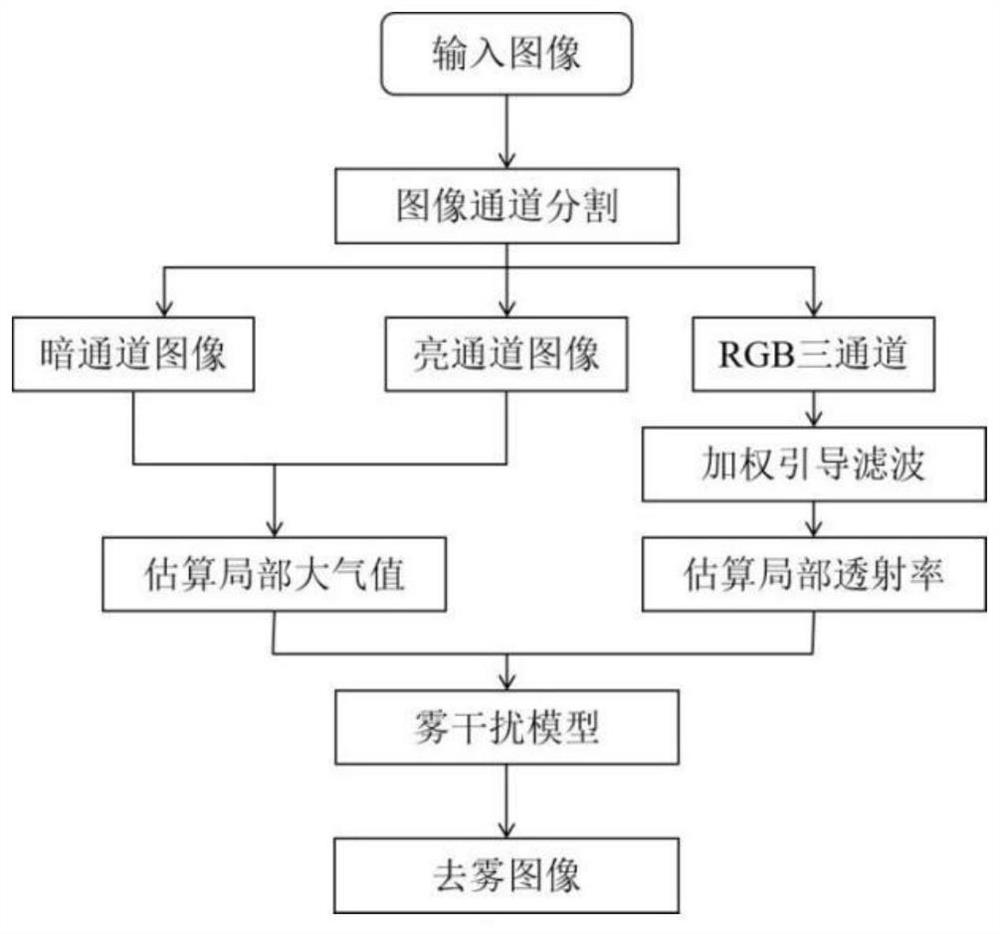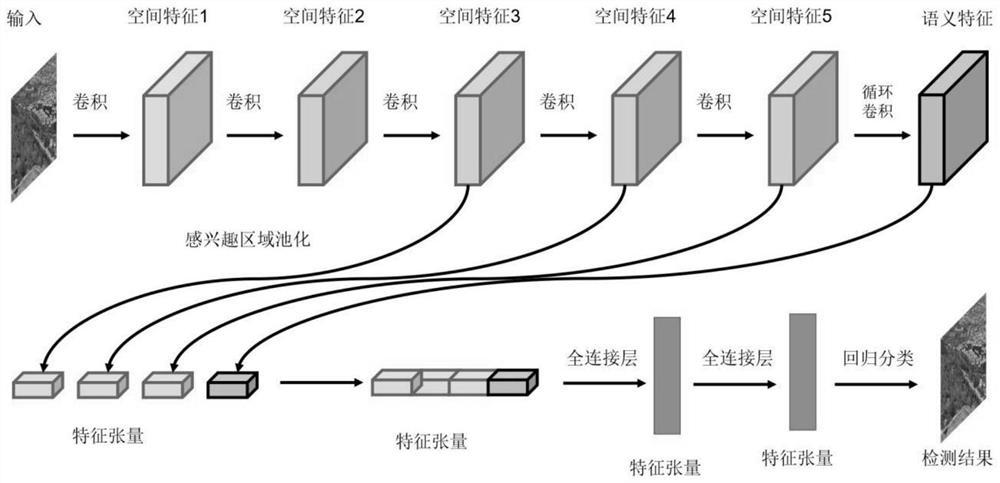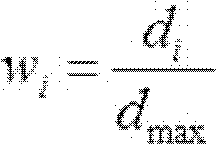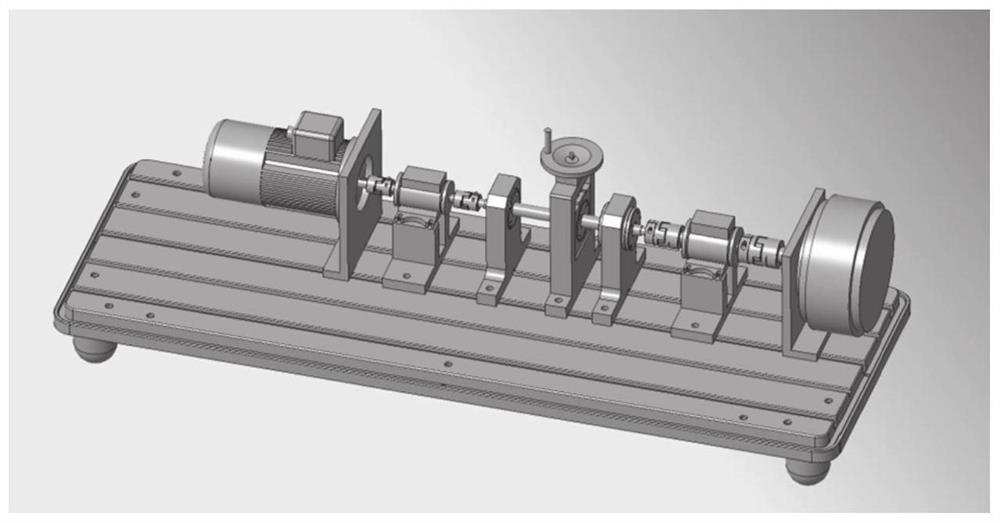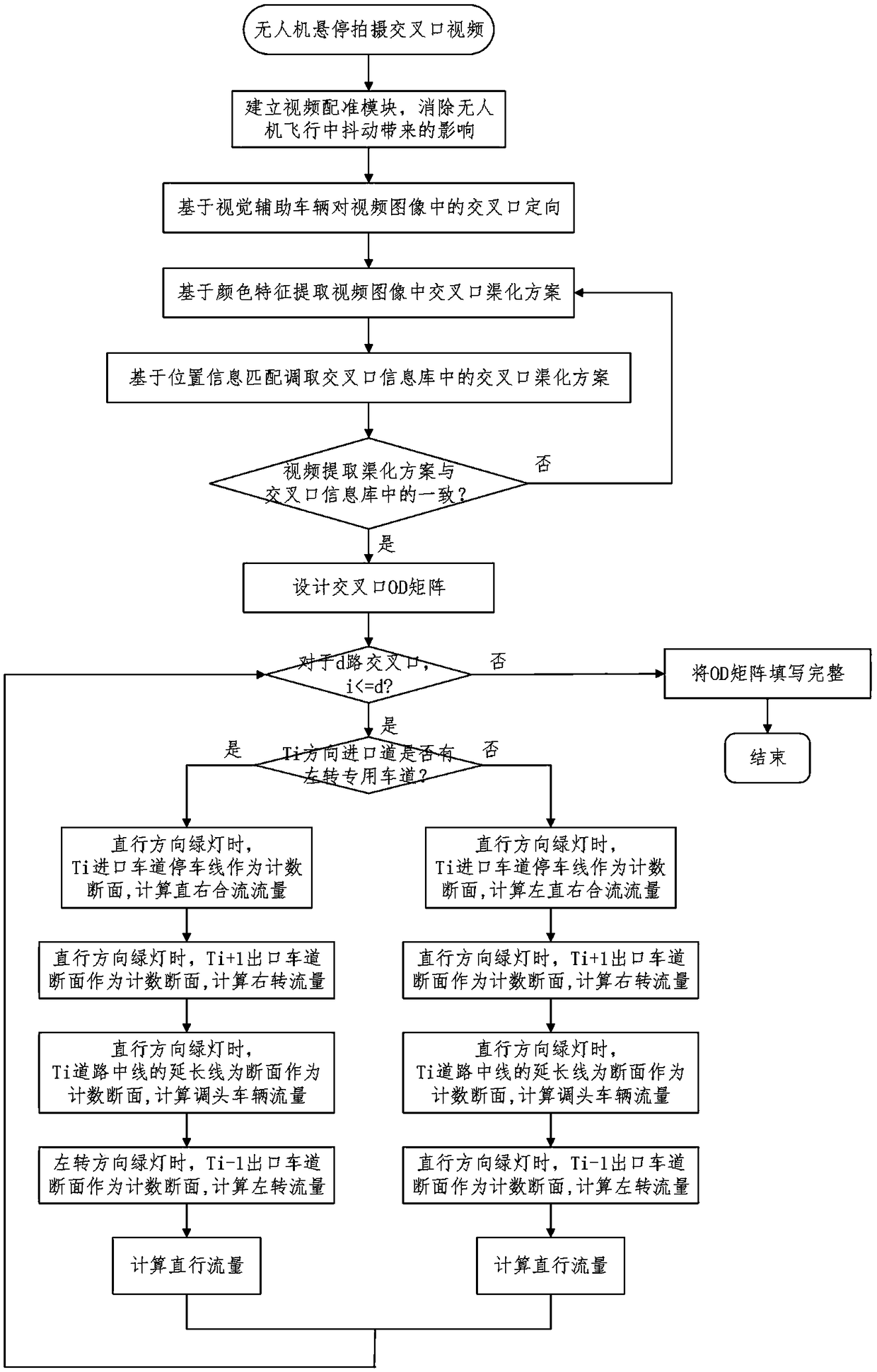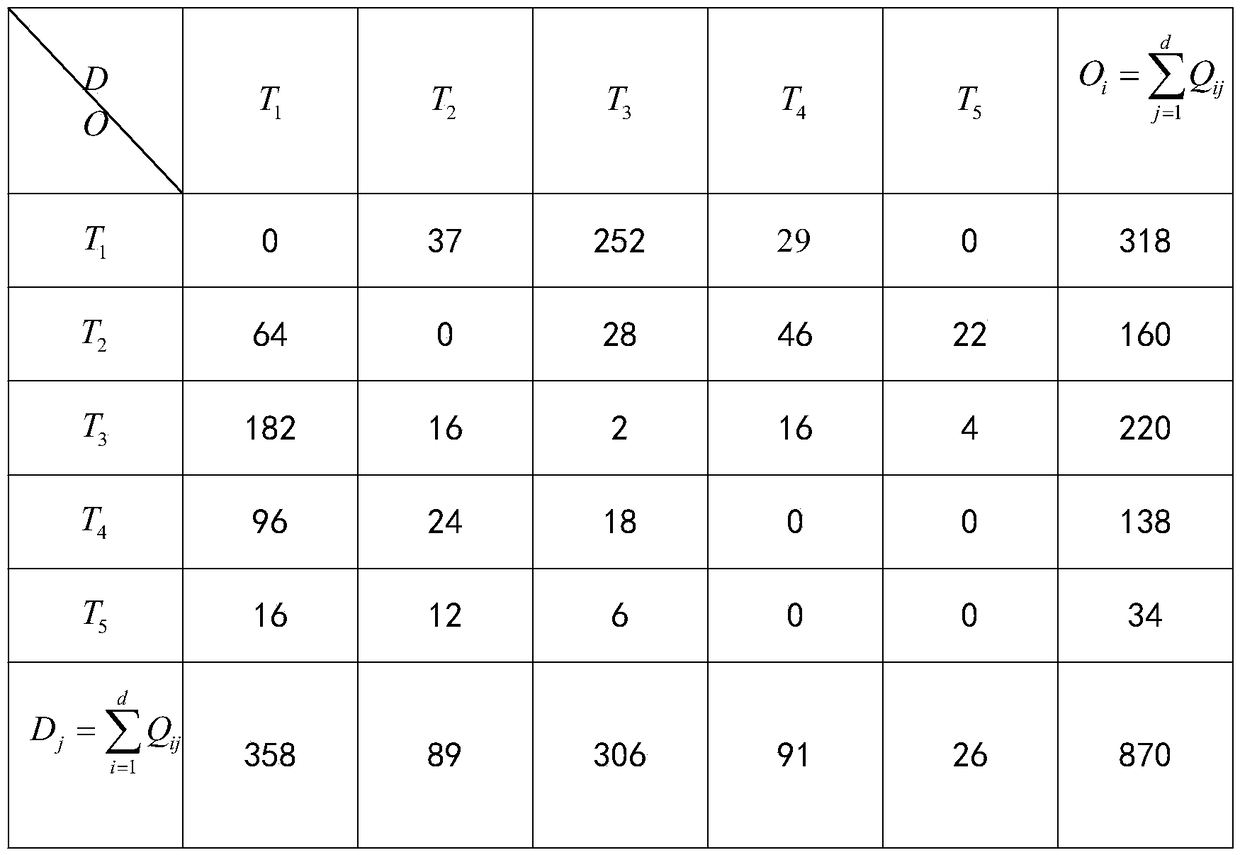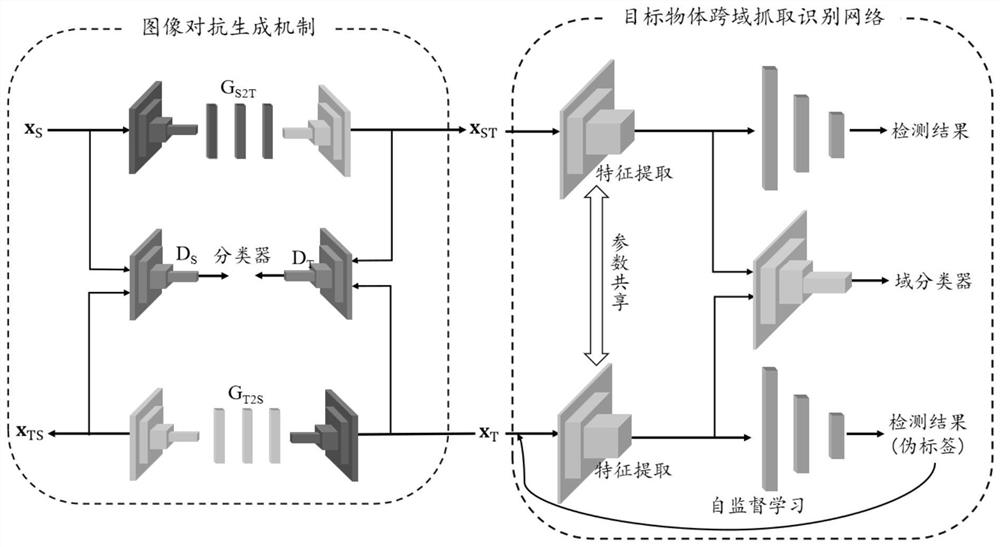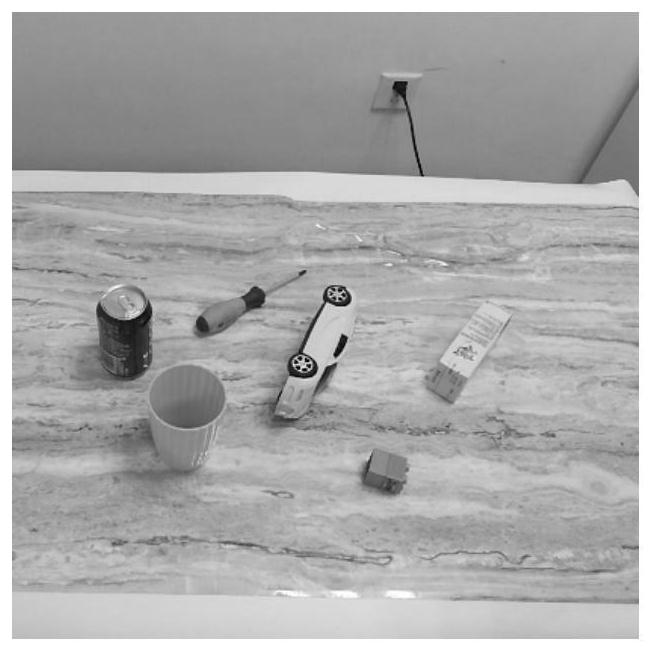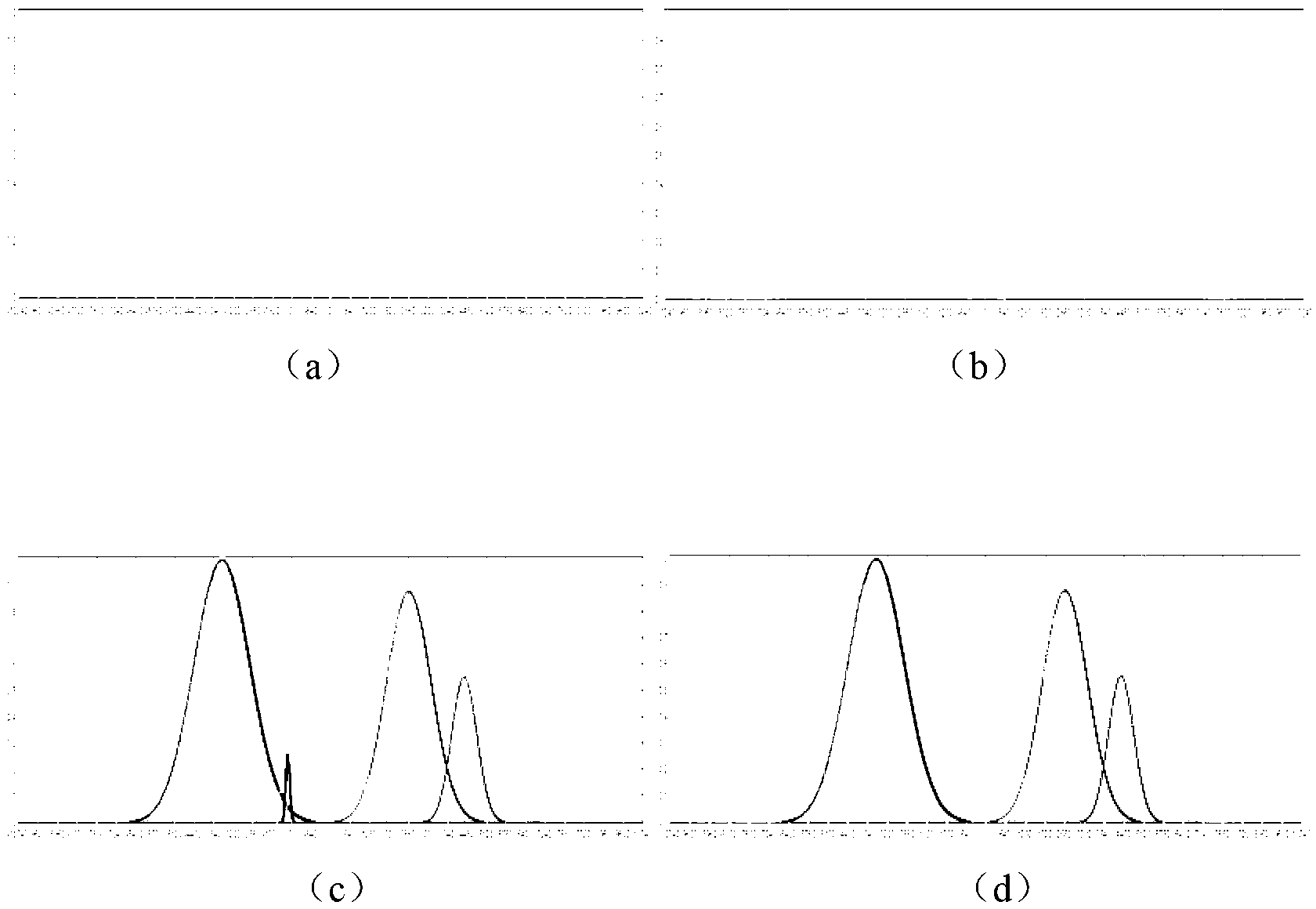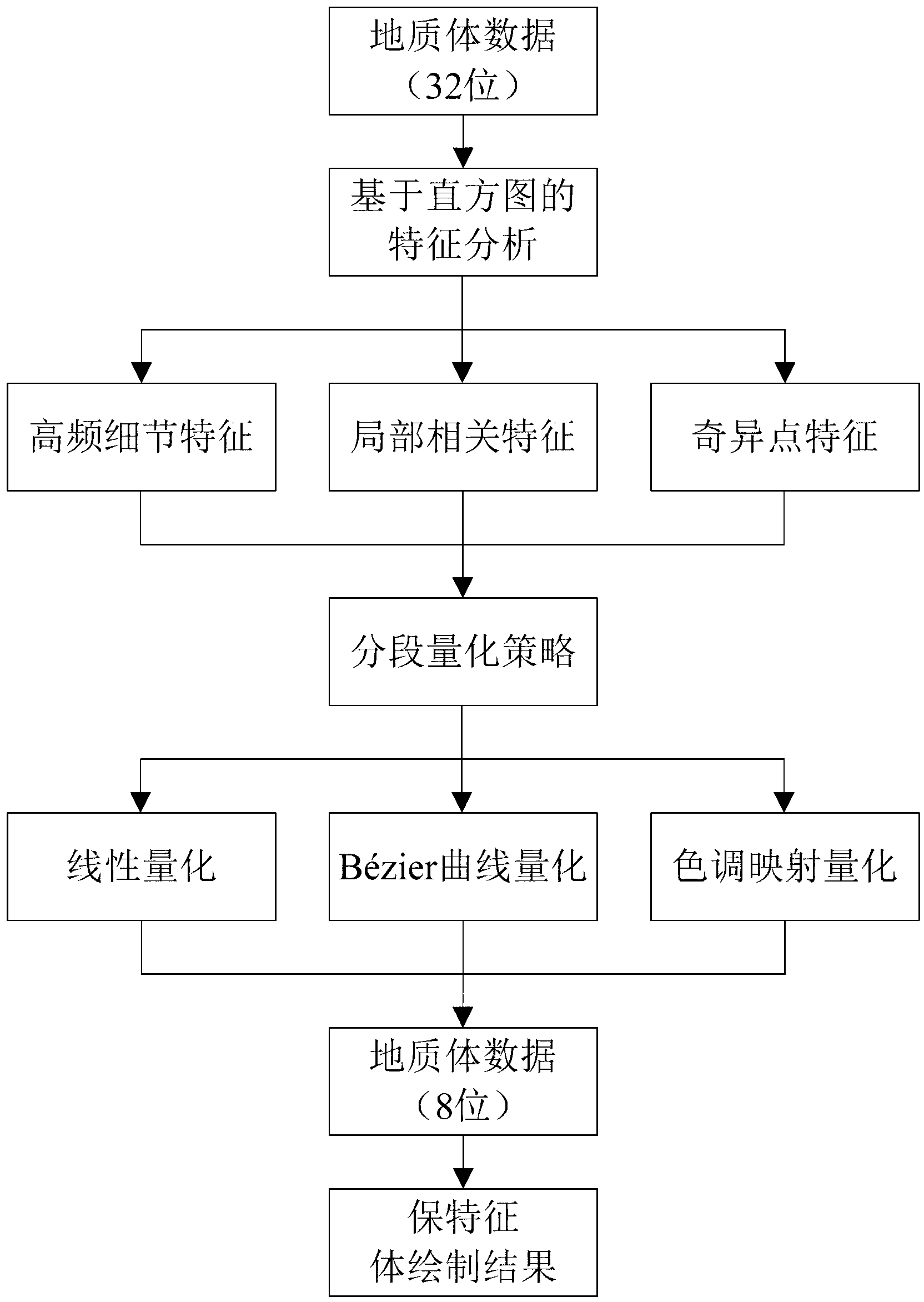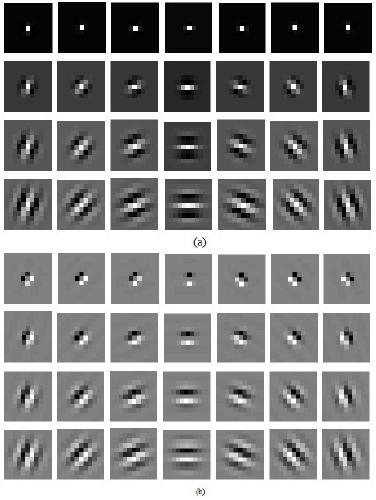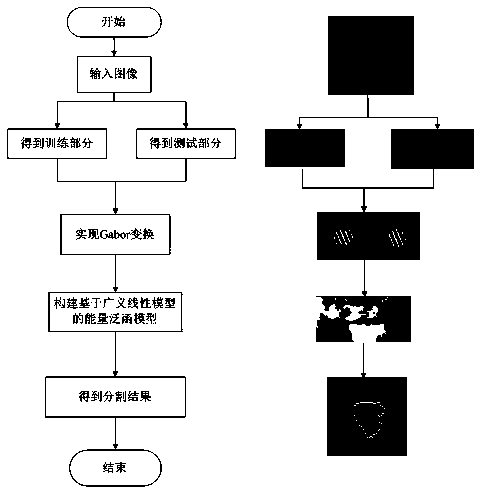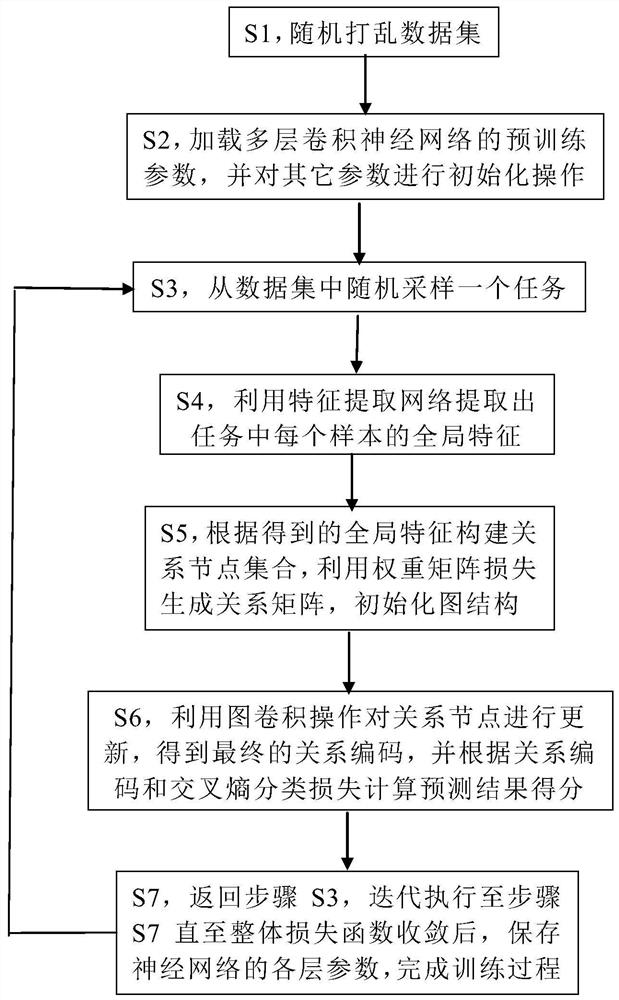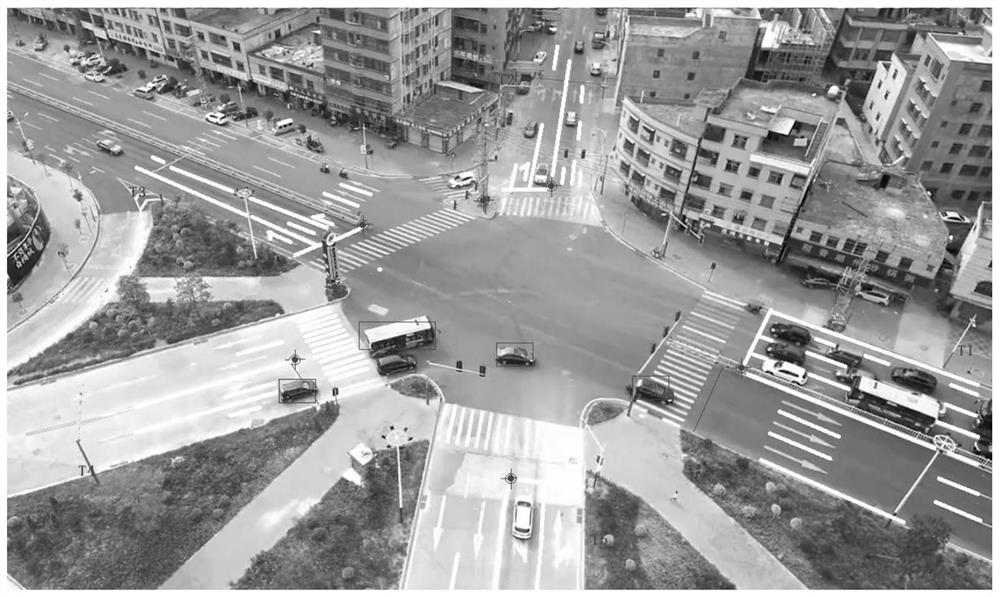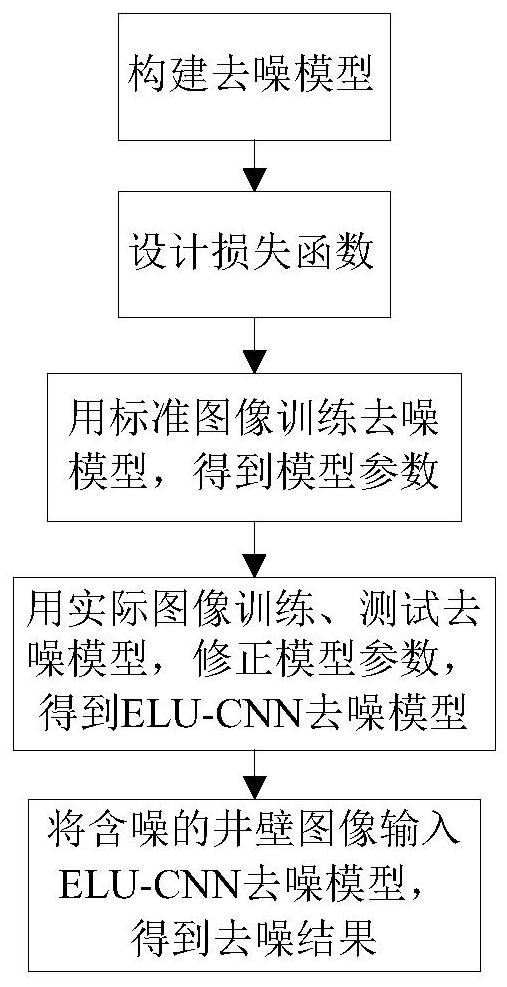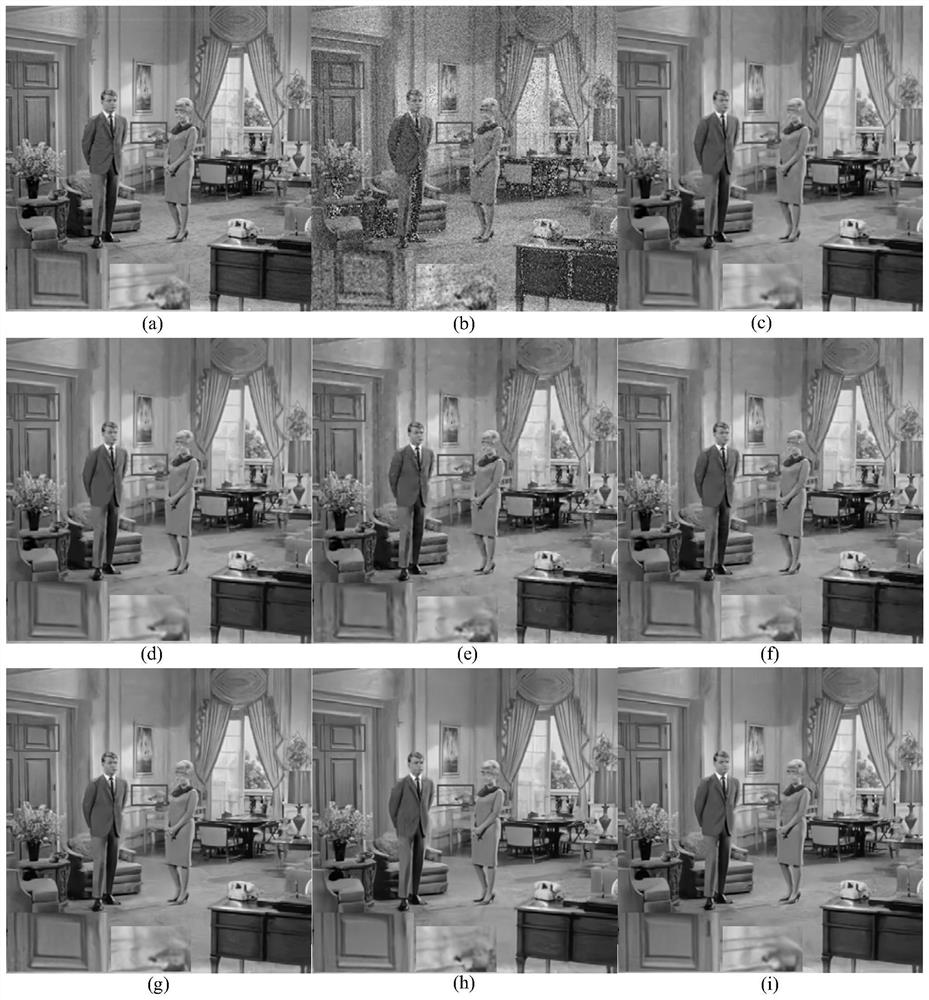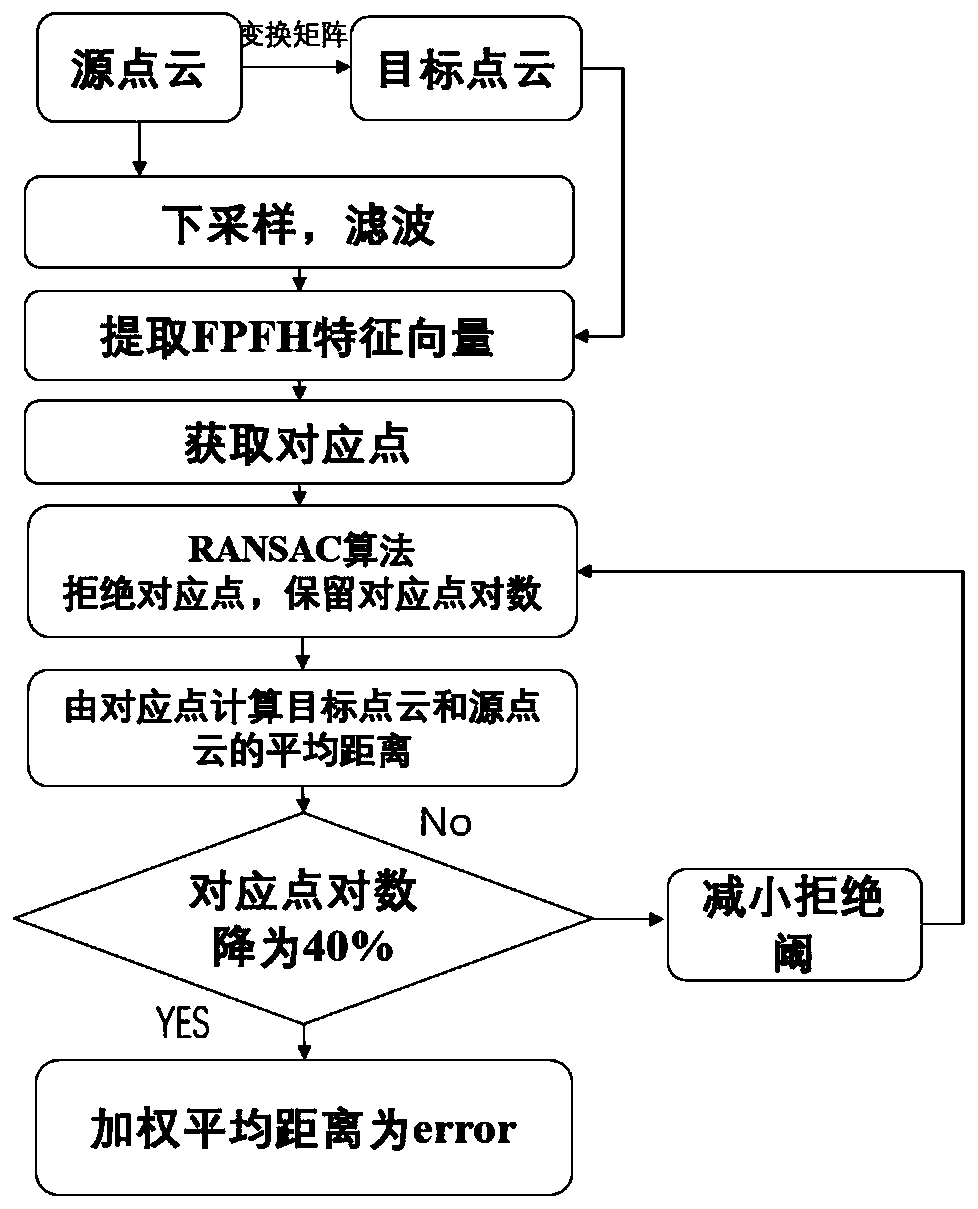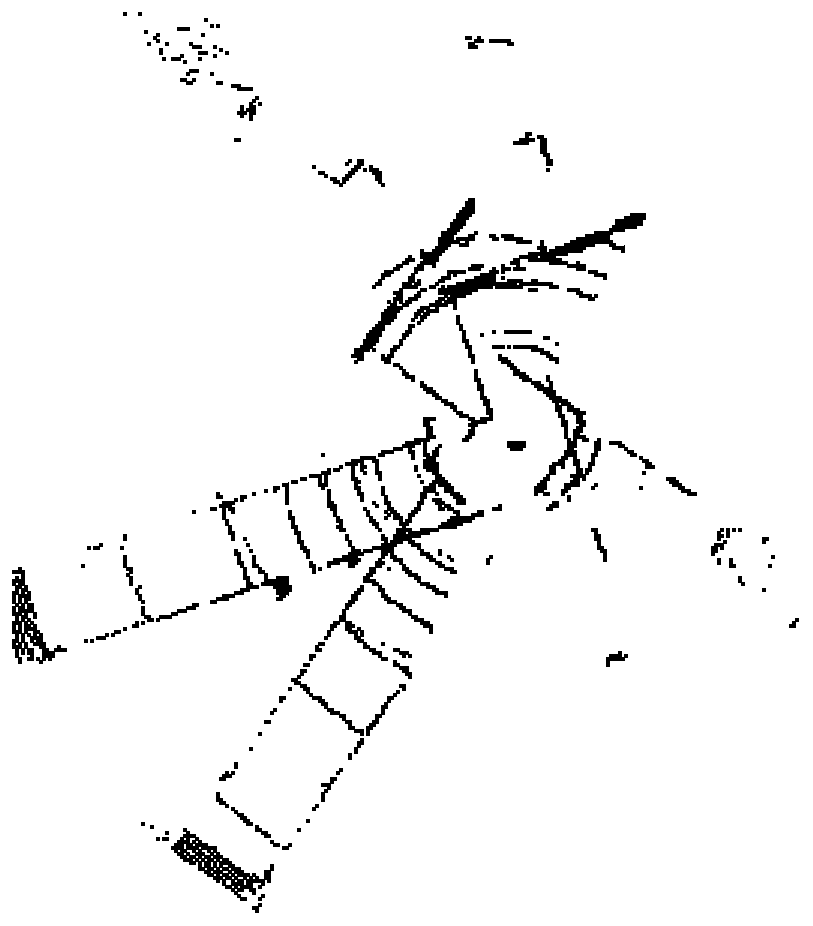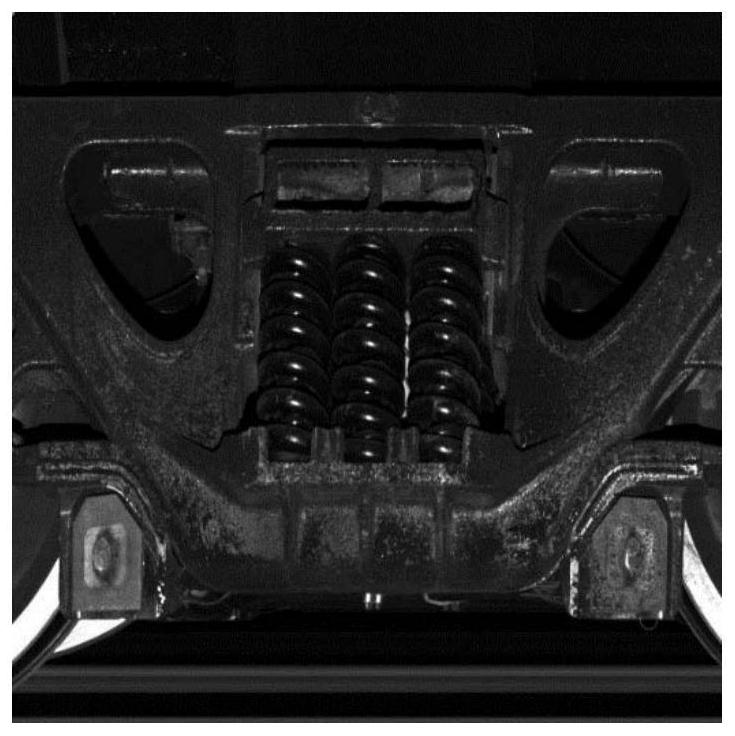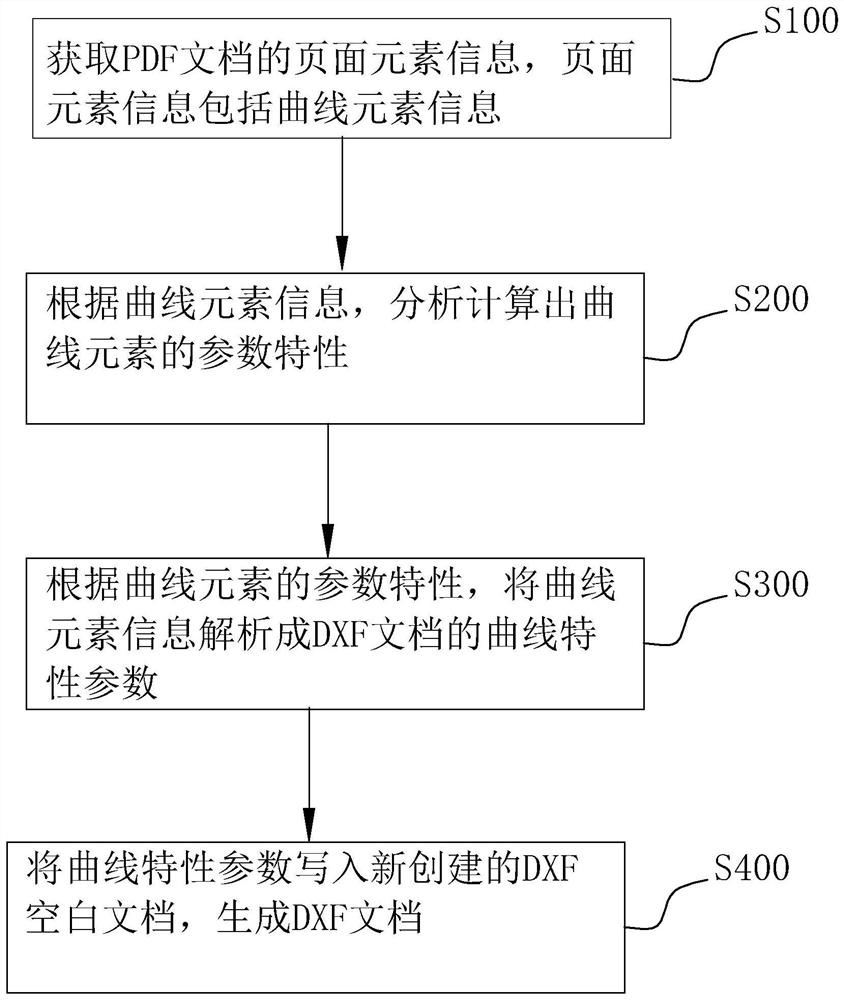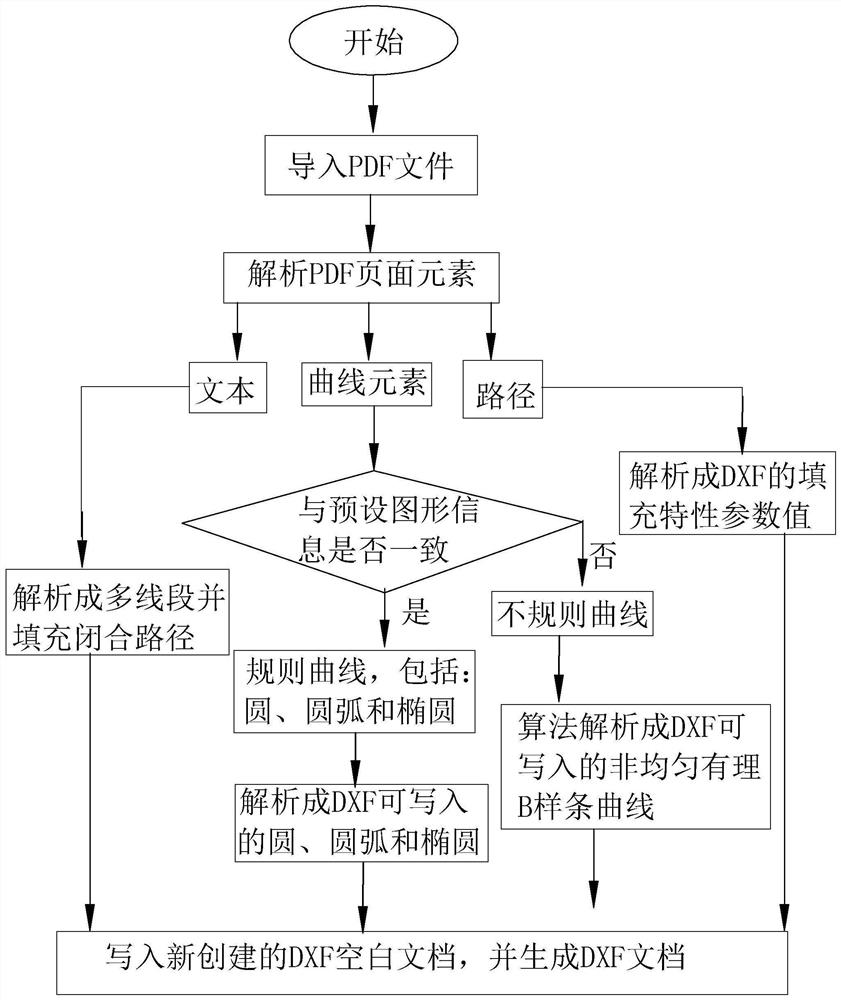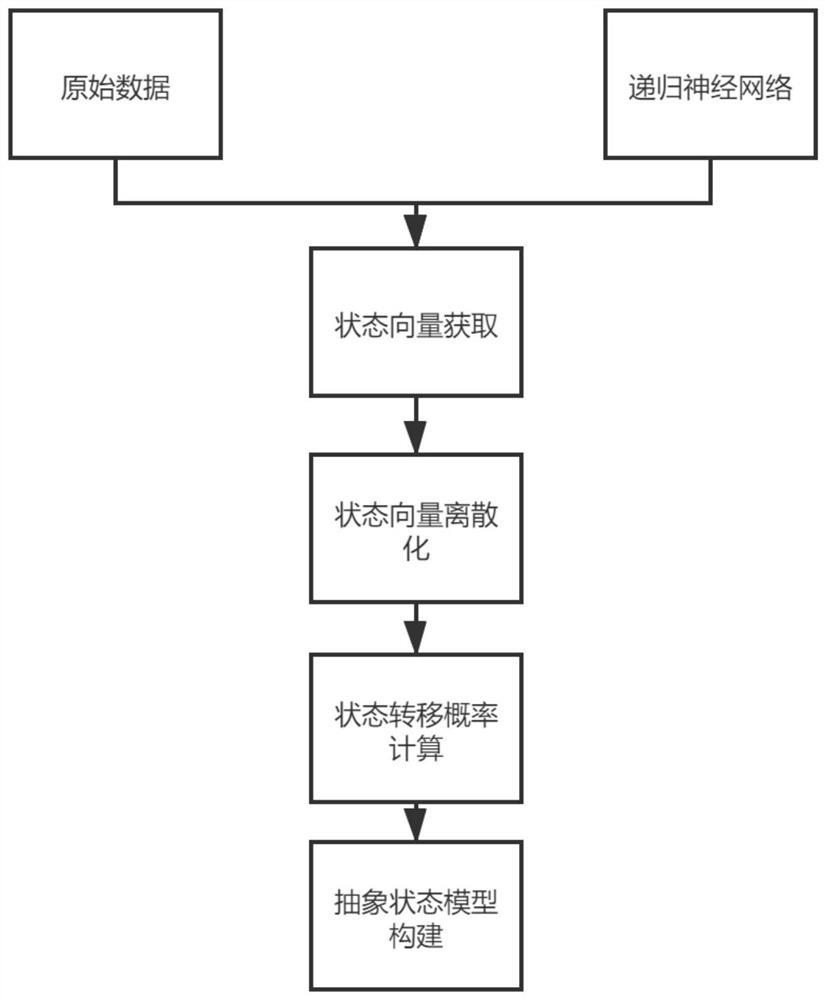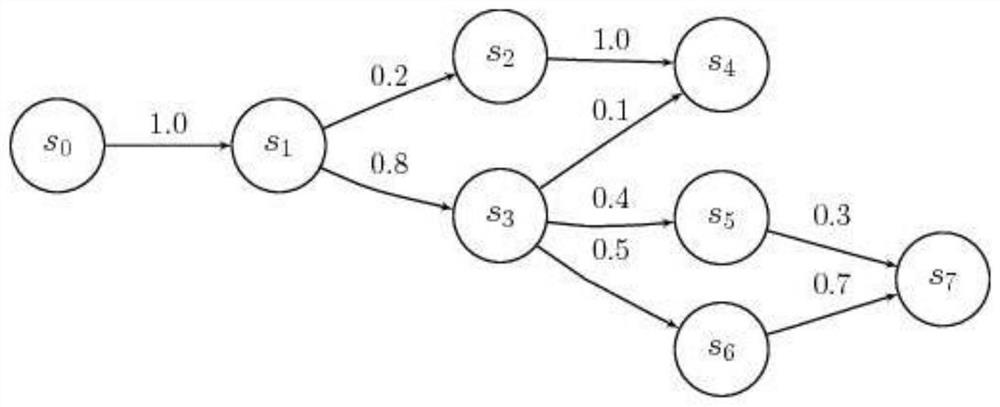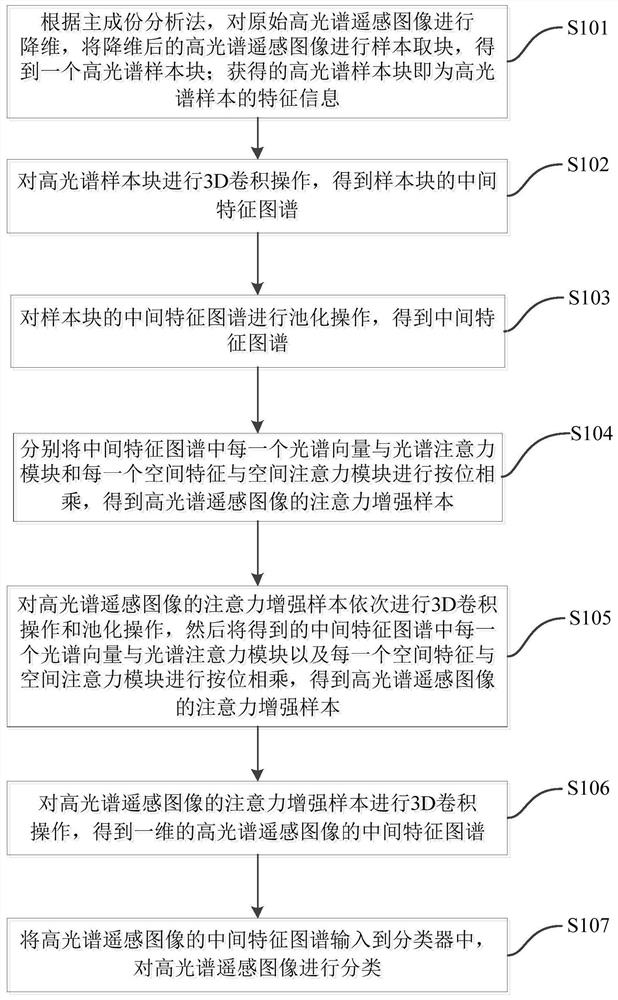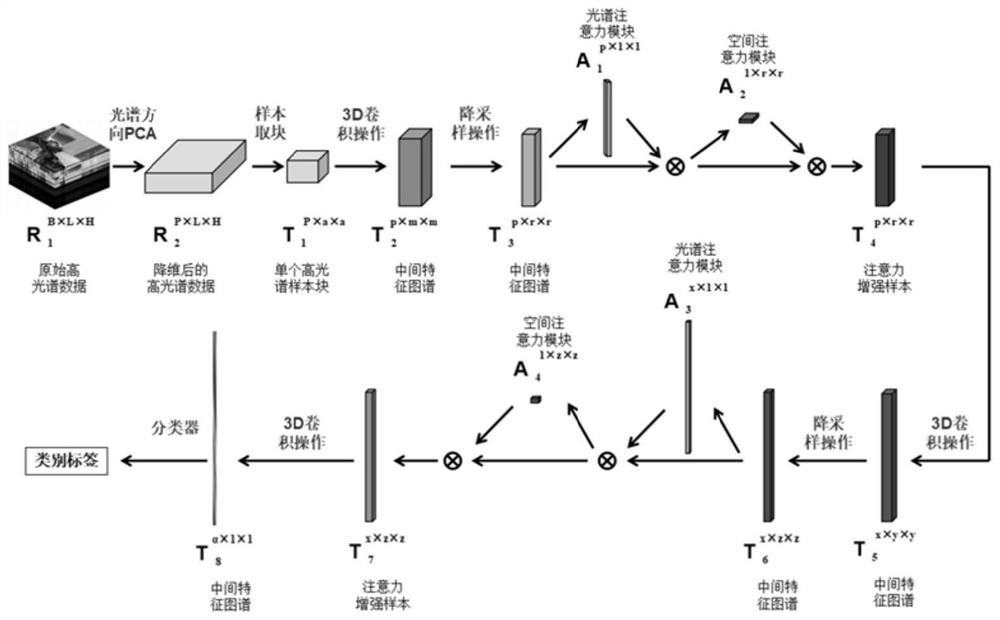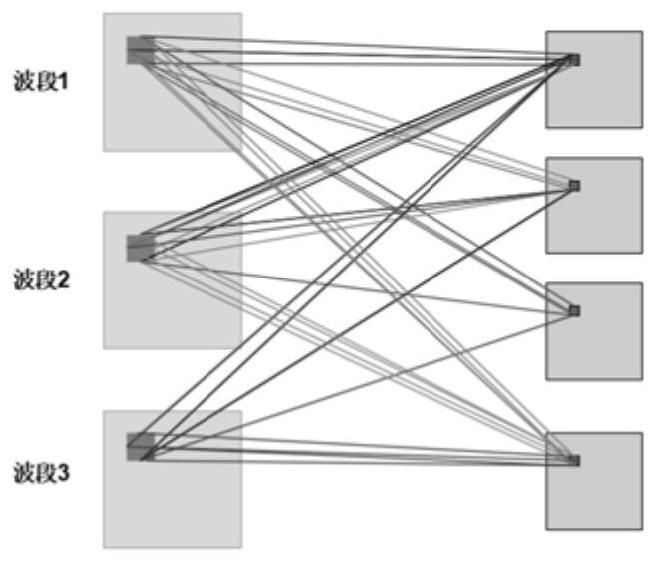Patents
Literature
Hiro is an intelligent assistant for R&D personnel, combined with Patent DNA, to facilitate innovative research.
33results about How to "Preserve feature information" patented technology
Efficacy Topic
Property
Owner
Technical Advancement
Application Domain
Technology Topic
Technology Field Word
Patent Country/Region
Patent Type
Patent Status
Application Year
Inventor
A feature image recognition method based on a multi-attention space pyramid
InactiveCN109902693AEasy to keepPreserve feature informationCharacter and pattern recognitionNeural architecturesFeature vectorFeature extraction
The invention discloses a feature image recognition method based on a multi-attention space pyramid, and belongs to the technical field of network mode identification. The method is characterized in that a shallow network deepening method is combined; the feature extraction capability of the convolutional neural network is enhanced; More abundant feature representations are obtained by fusing multi-scale attention features through an attention module, and a spatial pyramid pooling operation is added at the end of each branch network to perform multi-scale feature extraction, so that feature maps of any size are converted into feature vectors of fixed sizes to be sent to a full connection layer. The network provided by the invention can input images with any size without zooming or cutting,better retains the feature information of the images, and has better robustness and accuracy in the aspects of image fine recognition and low-pixel image classification recognition in a complex environment.
Owner:TAIYUAN UNIV OF TECH
Point cloud data denoising method based on k near neighborhood division
InactiveCN107392875ASimple structureImprove computing efficiencyImage enhancementImage analysisPoint cloudEvaluation function
The invention discloses a point cloud data denoising method based on k near neighborhood division. The point cloud data denoising method based on k near neighborhood division includes the steps: utilizing a table cell method to perform space division on point cloud data; acquiring the neighborhood information of the point cloud data, and completing point cloud data k near neighborhood searching; calculating the average distance between two points in the point cloud data; calculating the value of the influence of any one point in the point cloud data on the point of the k near neighborhood; traversing the average value of the point cloud data influence values, and then, on the basis, setting a threshold compared with the influence; comparing the set threshold with the value of the point cloud data influence to judge whether the point is a noise point; and removing the noise point, and obtaining the denoised point cloud data. The point cloud data denoising method based on k near neighborhood division combines the k near neighborhood information which is determined through space division of point cloud data by means of the table cell method, of any one point, with the Gauss influence function which is taken as the influence evaluation function, can effectively remove the noise points in the point cloud model, and can maintain the characteristic information of the original model and improve the calculating efficiency at the same time.
Owner:CHANGAN UNIV
Externally arranged ultrahigh frequency partial discharge detection sensor
InactiveCN103149507AAvoid receivingPreserve feature informationTesting dielectric strengthLow noiseElectrical conductor
An externally arranged ultrahigh frequency partial discharge detection sensor comprises a metal shielding outer shell, a microstrip antenna and a coaxial cable connector. The metal shielding outer shell is a box body with an opening at the bottom, and the lower bottom edge of the long side wall is arc-shaped. The microstrip antenna is arranged in the metal shielding outer shell and is a rectangular paster antenna. Long edges of a conductor paster are respectively provided with an inward concave arc notch, arc notches are symmetrically arranged using a geometric center of the conductor paster as a symcenter, the microstrip antenna is arranged in the metal shielding outer shell through a dielectric substrate, and an earth plate of the microstrip antenna is a metal shielding outer shell. An integrated circuit board is arranged in the metal shielding outer shell. A low noise amplifying circuit connected with the microstrip antenna, a detector circuit, an amplifying circuit which outputs signals through the coaxial cable connector, and a power supply circuit are arranged on the integrated circuit board. The externally arranged ultrahigh frequency partial discharge detection sensor integrates the microstrip antenna, the integrated circuit board and the shielding outer shell, and is high in sensitivity, small in signal distortion, good in signal-to-noise ratio characteristic, and capable of keeping characteristic information of partial discharge signals to the maximum limit.
Owner:XIDIAN UNIV
Method for detecting micro-motion target through-wall radar
InactiveCN110221288AImprove signal-to-noise ratioImprove detection rateRadio wave reradiation/reflectionSignal-to-noise ratio (imaging)Intermediate frequency
The invention discloses a method for detecting a micro-motion target of a through-wall radar, and belongs to the field of radar detection and the field of through-wall radar detection. The method fordetecting the micro-motion target of the through-wall radar comprises the following steps that collected intermediate frequency echo signal is subjected to pulse compression treatment; a narrowband filter is designed according to Doppler frequency shift characteristics of a micro-motion target and used for suppressing out-of-band clutter; the signal after clutter suppression treatment is subjectedtocoherent integration; the treated signal is subjected to constant false alarm detection; the pulse compression increases the signal-to-noise ratio and distance accuracy; the clutter suppression caneffectively suppress strong clutter behind the obstacle; according to the method for detecting the micro-motion target of the through-wall radar,on the basis of the analysis of the Doppler frequencyshift characteristics of the micro-motion target, and weak echo waves of the micro-motion target behind a wall are subjected to treatments such as targeted wave filtering, amplification, and extraction, and effective detection of the micro-motion target is achieved.
Owner:CHANGZHOU NO 4 RADIO FACTORY
Model transfer method based on spectral data
ActiveCN109444066ARealize two-way transferAchieve transferColor/spectral properties measurementsModel sharingComputer science
The embodiment of the application discloses a model transfer method based on spectral data. The method includes measuring indexes of samples and collecting spectra; pretreating the spectra; dividing aplurality of the calibration samples into correction samples and prediction samples; preforming model transfer from a main instrument to a target instrument, namely, forward transfer; and alternatively, performing model transfer from the target instrument to the main instrument, namely, backward transfer. Compared with the traditional method, the method has the following advantages that: the interference of noise and irrelevant information can be suppressed through the correlation between the collected spectral data of the samples and the spectral data structure; two-way model transfer of themain instrument and the target instrument can be realized, and whether the instrument types of the main instrument and the target instrument are consistent or not is unrestricted, and whether collected spectral data points are consistent or not is unrestricted, so that the method is of great significance for model sharing of different types of spectrometers with the same spectral method and improving the applicability of the model.
Owner:SHANDONG UNIV
Two-dimensional code-based image processing method, device and two-dimensional code
InactiveCN106408066AMeet the requirements for clarityPreserve feature informationRecord carriers used with machinesPersonalizationImaging processing
The present invention relates to a two-dimensional code-based image processing method, a two-dimensional code-based image processing device and a two-dimensional code. The method includes the following steps that: original information is encoded according to a two-dimensional code encoding algorithm, so that a two-dimensional code can be generated; a two-dimensional code mask is generated according to the two-dimensional code; a halftone image is generated through adopting a halftone image generating method based on the target image; and the two-dimensional code mask and the halftone image are fused through using a PCA (principal component analysis) method, so that a composite image can be generated. An effect picture obtained after the fusion of a two-dimensional code generated by the image processing method and a personalized picture can meet a requirement for scanning clarity, and the feature information of the two-dimensional code and the personalized picture can be reserved as much as possible.
Owner:BEIJING SANKUAI ONLINE TECH CO LTD
Seismic trace set dynamic correction stretching correction pre-processing technology before AVO inversion depending on frequency
InactiveCN104391324AEliminate the effect of increased amplitudeImprove computing efficiencySeismic signal processingAmplitude distortionSeismic trace
A seismic trace set dynamic correction stretching correction pre-processing technology before AVO inversion depending on frequency is an oil seismic exploration data processing and explaining technology, which eliminates the problem about dynamic correction stretching of frequency and amplitude distortion caused by dynamic correction processing, and effectively reserves feature information including amplitude following frequency, incident angle or offset variation of seismic reflection in the seismic trace set. The method including the steps of: firstly analyzing variation situation of the amplitude and the frequency along with the offset, adopting offset data with high frequency as a target trace of time-varying matched filtering at a small offset end, and getting a time-varying matched filtering factor, performing time-varying matched filtering on the seismic trace of each offset and the target trace, meanwhile correcting amplitude distortion, and thereby achieving the seismic trace set after being corrected by dynamic correction stretching. The technology is used for preprocessing pre-stack seismic data bore AVO inversion depending on frequency in oil and gas seismic exploration, and improves precision and reliability of subsequent geographical parameter inversion and oil and gas recognition of a reservoir stratum.
Owner:CHENGDU UNIVERSITY OF TECHNOLOGY
EEMD (Ensemble Empirical Mode Decomposition) and HMM (Hidden Markov Model) based analog circuit intermittent fault diagnosis method
ActiveCN108535635AAvoid misidentificationGood recognition effectAnalog circuit testingCAD circuit designDiagnosis methodsDecomposition
The invention discloses an EEMD (Ensemble Empirical Mode Decomposition) and HMM (Hidden Markov Model) based analog circuit intermittent fault diagnosis method. The specific steps of the method are asfollows: manufacturing a same analog circuit for testing according to the existing analog circuit system, obtaining a key node on a test circuit through sensitivity analysis, and installing a relay for the key node, wherein the closing frequency of the relay is set to two modes: a fixed frequency for simulating the periodic intermittent fault and a random closing frequency for simulating the random intermittent fault. The operation state of the intermittent fault of the circuit system is simulated by controlling the intermittent closing of the key-node relay, so that sample data of the test circuit are obtained, the EEMD processing and the feature extraction are conducted on the acquired sample data to construct an energy feature matrix, the different states of HMMs are trained by using the feature matrix, the well trained HMM is used to identify and classify the acquired signal data of the existing analog circuit, and the fault type of the signal of the existing analog circuit systemis efficiently accurately identified.
Owner:CHONGQING UNIV
Bank note one-dimensional signal detection method and device
ActiveCN106548558AImproved ability and stability of recognitionRich means of processingPaper-money testing devicesData processingBank note
The invention discloses a bank note one-dimensional signal detection method and device. According to the bank note one-dimensional signal detection method and device, bank note one-dimensional signal data are converted into a two-dimensional gray value; the two-dimensional gray value is preprocessed; and the two-dimensional gray value is detected through using a two-dimensional data processing method, so that whether an adhesive tape is bonded on a bank note can be detected, the authenticity and face value of the bank note can be detected. According to an existing one-dimensional signal detection, abnormal samples are difficult to be distinguished, and normal samples are falsely denied, and bank notes bonded with adhesive taps are difficult to be identified accurately, while with the bank note one-dimensional signal detection method and device of the invention adopted, the problems in the prior art can be solved.
Owner:GRG BAKING EQUIP CO LTD
Brain electrical impedance tomography method based on GAN
InactiveCN110720915APreserve feature informationHigh solution accuracyDiagnostic recording/measuringSensorsData setOriginal data
The invention relates to a brain electrical impedance tomography method based on GAN, which comprises the following steps: 1) acquiring original data, acquiring a boundary voltage sequence through anexperimental device, and performing grid subdivision on an object field area to obtain a corresponding real conductivity distribution diagram as sample data; 2) preprocessing data, performing normalization processing on the acquired boundary voltage sequence and converting the sequence into a two-dimensional graph; 3) constructing a generative adversarial network, and training the network by usinga sample data set to obtain a nonlinear mapping relationship between the boundary measurement voltage sequence and the conductivity distribution sequence; and 4) generating a corresponding conductivity distribution diagram from the untrained voltage sequence through the trained network. According to the method, the nonlinear problem during electrical impedance tomography inverse problem solving is solved, the precision of reconstructed images is improved, the noise immunity is high, the requirement for the noise immunity of an imaging system is lowered, and the imaging speed is high.
Owner:ZHEJIANG UNIV OF TECH
Network flow measurement algorithm based on sampling
InactiveCN107196826AImplementing Equal Probability SamplingPreserve feature informationData switching networksEqual probabilityBloom filter
The invention discloses a network flow measurement algorithm based on sampling. The method comprises the following steps: (1) reasonably configuring parameters of a Counting Bloom Filter structure; (2) judging whether the network flow of an arrival data packet is new flow by using the Counting Bloom Filter structure; (3) if the arrival data packet is judged as the new flow, inserting the new flow into the Counting Bloom Filter, adding 1 to a flow counter, calculating an error probability P of the number of the inserted flow, adjusting the sampling frequency (the formula is as shown in the specification) at the same time, wherein f is the sampling frequency of the entire algorithm, perform random sampling on the new flow according to the adjusted frequency, continuing to process the next packet, repeating the step (2) to continue the circulation; and (4) if it is judged that no new flow arrives, continuing to process the next packet, and repeating the step (2) to continue the circulation. By adoption of the network flow measurement algorithm based on sampling, equal probability sampling of the network flow is realized, the network flow data can be reduced, the feature information of the network flow data can be maintained, and the storage resources of the system are saved.
Owner:SOUTHEAST UNIV
Unmanned aerial vehicle-mounted small target detection and positioning method and system under complex background
PendingCN112489032AImplement featuresEasy to detectImage enhancementImage analysisPattern recognitionPixel mapping
The invention discloses an unmanned aerial vehicle-mounted small target detection and positioning method and system under a complex background. The method comprises the following steps: acquiring a video image of a small target and attitude data of an unmanned aerial vehicle and a holder; preprocessing the acquired video image through a multi-channel optimization adaptive guided filtering defogging algorithm; detecting the preprocessed video image by using a limited pixel target space-semantic information fusion detection algorithm to obtain a pixel position of a small target; performing association mapping on the pixel position of the small target in the video image and the geographic coordinate of the unmanned aerial vehicle by using a spatial multi-parameter pixel mapping geographic coordinate positioning algorithm to obtain the longitude, latitude and height of the small target in a geographic coordinate system; and displaying the small target in the unmanned aerial vehicle-mountedvideo image and the longitude, latitude and height of the small target in the geographic coordinate system in real time. According to the invention, real-time on-line accurate detection and positioning can be carried out on an unmanned aerial vehicle-mounted small target under a complex background.
Owner:UNIV OF SCI & TECH BEIJING
Quantitative assessment method for image heterogeneity characteristics
A quantitative assessment method for image heterogeneity characteristics comprises confirming a mathematical expression of image heterogeneity; obtaining a three dimensional image of an assessed image; obtaining a gray value for each point; setting a reference gray value Gth in an effective area or an interested area; counting the total number M of effective points inside the three dimensional image; getting a maximum center distance dmax; counting the number Ni of adjacent effective points of each point; calculating absolute differences (absolute value of G ij) of the gray values between each point and the adjacent effective points therearound; introducing the obtained parameters into the formula provided in step 1 and calculating a heterogeneity characteristic value H in the effective area or the interested area; and obtaining a characterization symbol + or - of gray distribution change in the effective area or the interested area according to the calculating steps for the characterization symbol of gray distribution change in the effective area or the interested area. The quantitative assessment method for the image heterogeneity characteristic is characterized by a simple form, fewer parameters, a quick speed and a convenient application, and reserves the information of spatial distribution and characteristics of the image.
Owner:TIANJIN UNIV
Rolling bearing fault diagnosis method and system based on discrete cosine cyclic spectrum coherence
ActiveCN113776834AAccurate and Rapid DiagnosisReduce the difficulty of feature learningMachine part testingNeural architecturesData imbalanceTime domain
The invention provides a rolling bearing fault diagnosis method and system based on discrete cosine cyclic spectrum coherence, and belongs to the technical field of mechanical equipment fault diagnosis. The method comprises the steps: obtaining a time domain vibration signal of a rolling bearing; extracting discrete cosine cyclic spectrum coherent features from the time domain vibration signals to obtain a two-dimensional discrete cosine cyclic spectrum coherent feature map; and obtaining a final diagnosis result according to the two-dimensional discrete cosine cyclic spectrum coherent feature map and a preset convolutional neural network model. Based on the discrete cosine cyclic spectrum coherent features and the improved convolutional neural network model, accurate and rapid diagnosis of the rolling bearing fault can be realized under data distribution change conditions such as data imbalance and working condition change.
Owner:SHANDONG UNIV
Intersection OD (Origination and Destination) matrix estimation method based on low altitude unmanned aerial vehicle
InactiveCN109003451ADifficult to solveSolve the problem of matching the actual bearingImage enhancementImage analysisRadarEstimation methods
The invention provides an intersection OD (Origination and Destination) matrix estimation method based on a low altitude unmanned aerial vehicle. The method comprises the following steps that: firstly, establishing a video registering module to eliminate an influence caused by video image processing due to unmanned aerial vehicle jittering; secondly, arranging a radar to assist in directionally solving the direction matching problem of the interception in an image and reality, and through a channelizing scheme of extracting the intersection through a color feature detection method, comparing the channelizing scheme with a channelizing scheme in an existing record to determine a final channelizing scheme; and finally, according to the channelizing scheme, establishing the intersection OD matrix, delimiting a section extracted by each-direction flow to finish flow extraction and OD matrix filling. Through the above technical scheme, the problem that an aerial photography intersection video is difficult in matching with a practical orientation in a processing process can be solved, and the accuracy of the method is fully guaranteed. Compared with traditional road segment section flowestimation, the method guarantees the multi-flow-direction characteristic information of the intersection.
Owner:BEIHANG UNIV
Cross-domain grabbing recognition method and device, electronic equipment and storage medium
PendingCN113128411AReduce the differenceAchieve effective cross-domain migrationCharacter and pattern recognitionNeural architecturesPattern recognitionData set
The invention discloses a cross-domain capture recognition method and device, electronic equipment and a storage medium, and relates to the technical field of vision, and the cross-domain capture recognition method comprises the steps: generating an image cross-domain generative adversarial network; generating a pseudo target domain image with a target domain style from a source domain image by using the image cross-domain generative adversarial network; constructing an initial grabbing recognition model; pre-training the initial capture recognition model by using the pseudo target domain image; obtaining a target object cross-domain grabbing recognition model according to a preset domain classifier and the initial grabbing recognition model; and establishing a multi-target object capturing data set, and performing cross-domain capturing recognition of the target object in the complex scene according to the multi-target object capturing data set and the target object cross-domain capturing recognition model. According to the cross-domain capture recognition method, the difference of different-domain data can be reduced from the data level and the network structure level, and effective cross-domain migration of the capture recognition model is achieved.
Owner:深圳市格灵精睿视觉有限公司
Geologic body data visualization oriented feature-preservation quantifying method
InactiveCN103295208AAchieving feature-preserving quantizationEasy to analyzeImage enhancementComputation processData visualization
The invention discloses a geologic body data visualization oriented feature-preservation quantifying method. The geologic body data visualization oriented feature-preservation quantifying method includes smoothing initial geologic body data by a bilateral filtering process, respectively performing statistics on a histogram of the initial geologic body data and a histogram smoothed geologic body data to obtain a difference histogram of the two histograms, and acquiring high-frequency detail feature intervals by a Gaussian fitting process; defining a local correlation computation process, performing statistics on local correlation histograms of the initial geologic body data and acquiring feature intervals with high local correlation in the geologic body data by the Gaussian fitting process; removing the high-frequency detail feature intervals and local correlated feature intervals in high-dynamic-range intervals of the initial geologic body data to acquire singularity feature intervals in the initial geologic body data. The geologic body data visualization oriented feature-preservation quantifying method has the advantages that a user can interactively define significance proportions of features according to requirements of the user, the initial geologic body data in a 32-bit high-dynamic range can be quantified into 8-bit geologic body data by the aid of a segmented quantification scheme, and accordingly the initial geologic body data can be quantified in a feature-preservation manner.
Owner:ZHEJIANG UNIV
Medical image lesion area segmentation method based on energy functional model of machine learning
ActiveCN111192249AEasy to divideEffectively retain feature informationImage enhancementImage analysisMedicineNormal tissue
The invention discloses a medical image lesion area segmentation method based on an energy functional model of machine learning, and the method comprises the steps: firstly processing a medical imagethrough employing Gabor transformation and a generalized linear machine learning method, capturing the discrimination description of a lesion area and a normal tissue area, and obtaining a learning model based on the lesion area; and then constructing the energy functional model on the basis, and segmenting the lesion area of the medical image. The problems that a machine learning method is sensitive to label data and the energy functional can fall into a local minimum value are solved, the medical image with a complex background can be well segmented, and the feature information of the lesionarea is effectively reserved and reliable guarantee is provided for accuracy of diagnosis of the lesion area for the doctor.
Owner:LIAONING NORMAL UNIVERSITY
Small sample learning method and device based on sample pair relationship propagation
PendingCN112559582AImprove discriminationEasy to digCharacter and pattern recognitionData miningSmall sampleAlgorithm
The invention discloses a small sample learning method and device based on sample pair relationship propagation. According to the method, explicit modeling and propagation are performed on the relationship between the sample pairs of the support set query set, so that a relationship code with better discrimination can be obtained. By introducing the pseudo-relationship nodes, the feature information of the query set sample can be effectively reserved. Moreover, the invention further provides an effective transduction learning strategy, and the relation information between the query set samplescan be better mined, so that a more accurate classification result is obtained. Compared with the prior art, the method has the advantages that potential information contained in the sample pair of the support set query set in each task is better mined, and higher accuracy and better generalization ability are achieved when a brand-new task is processed.
Owner:BEIHANG UNIV
Transformer Partial Discharge UHF Signal Denoising Method Based on Improved Variational Mode and Singular Value Decomposition
ActiveCN108983058BImprove denoising abilityEnhanced inhibitory effectTesting dielectric strengthAlgorithmReliability engineering
The invention discloses a denoising method for a partial discharge ultrahigh-frequency signal of a transformer based on the improved variational mode and SVD (singular value decomposition). The methodcomprises the following steps: collecting a partial discharge signal of oil-paper insulation of the transformer by using an ultra-high frequency detection method, performing the variational mode decomposition of the collected partial discharge signal; optimizing the parameters of the variational mode decomposition algorithm through using the evolutionary algorithm, and introducing a kurtosis indicator to filter out narrowband noise; performing the SVD of a signal with the narrow-band noise being filtered; improving a singular value screening process in the SVD algorithm through using a clustering algorithm, thereby achieving the better filtering of white noise. The method has the characteristics of high precision, good denoising effect and small distortion, and is suitable for real-time monitoring of oil-paper insulation of the transformer, partial discharge signal detection and the like.
Owner:CHINA THREE GORGES UNIV
A low-altitude UAV-based intersection od matrix estimation method
InactiveCN109003451BGuaranteed accuracyPreserve feature informationImage enhancementImage analysisEstimation methodsUncrewed vehicle
The invention provides an intersection OD (Origination and Destination) matrix estimation method based on a low altitude unmanned aerial vehicle. The method comprises the following steps that: firstly, establishing a video registering module to eliminate an influence caused by video image processing due to unmanned aerial vehicle jittering; secondly, arranging a radar to assist in directionally solving the direction matching problem of the interception in an image and reality, and through a channelizing scheme of extracting the intersection through a color feature detection method, comparing the channelizing scheme with a channelizing scheme in an existing record to determine a final channelizing scheme; and finally, according to the channelizing scheme, establishing the intersection OD matrix, delimiting a section extracted by each-direction flow to finish flow extraction and OD matrix filling. Through the above technical scheme, the problem that an aerial photography intersection video is difficult in matching with a practical orientation in a processing process can be solved, and the accuracy of the method is fully guaranteed. Compared with traditional road segment section flowestimation, the method guarantees the multi-flow-direction characteristic information of the intersection.
Owner:BEIHANG UNIV
A Noise Removal Method for Shaft Wall Image in Deep Shaft
ActiveCN109859141BDo not change sizePreserve edge informationImage enhancementFeature extractionEngineering
The invention discloses a method for denoising images of shaft walls of deep shafts, comprising five steps: Step 1, constructing a denoising model; Step 2, designing a loss function; Step 3, using standard images to train the denoising model to obtain model parameters; Step 4 , use the actual image to train and test the denoising model, modify the model parameters, and obtain the ELU-CNN denoising model; Step 5, input the noisy well wall image into the ELU-CNN denoising model to obtain the denoising result. The denoising model is 28 layers deep, including 5 feature extraction modules FEM and skip links. The skip links combine the output features of the first convolutional layer with the output features of each FEM in series, so that the low-level features extracted by the first layer are continuously used. , to ensure the full extraction of image features. The invention can well preserve the texture features of the damaged part of the well wall when removing the blind noise of the well wall image.
Owner:ANHUI UNIV OF SCI & TECH
Method and device for detecting one-dimensional signal of bill
ActiveCN106548558BImprove counterfeiting abilityImprove stabilityPaper-money testing devicesComputer engineeringData processing
The invention discloses a bank note one-dimensional signal detection method and device. The method comprises: converting bank note one-dimensional signal data into a two-dimensional gray value; preprocessing the two-dimensional gray value; and detecting the two-dimensional gray value through a two-dimensional data processing method, so that it can be detected whether an adhesive tape is bonded on the bank note, the authenticity and face value of the bank note. The present invention solves the problems in the prior art that, in the existing one-dimensional signal detection, abnormal samples are difficult to be distinguished, and normal samples are falsely denied, and bank notes bonded with adhesive taps are difficult to be identified accurately.
Owner:GRG BAKING EQUIP CO LTD
Quantitative assessment method for image heterogeneity characteristics
A quantitative assessment method for image heterogeneity characteristics comprises confirming a mathematical expression of image heterogeneity; obtaining a three dimensional image of an assessed image; obtaining a gray value for each point; setting a reference gray value Gth in an effective area or an interested area; counting the total number M of effective points inside the three dimensional image; getting a maximum center distance dmax; counting the number Ni of adjacent effective points of each point; calculating absolute differences (absolute value of G ij) of the gray values between each point and the adjacent effective points therearound; introducing the obtained parameters into the formula provided in step 1 and calculating a heterogeneity characteristic value H in the effective area or the interested area; and obtaining a characterization symbol + or - of gray distribution change in the effective area or the interested area according to the calculating steps for the characterization symbol of gray distribution change in the effective area or the interested area. The quantitative assessment method for the image heterogeneity characteristic is characterized by a simple form, fewer parameters, a quick speed and a convenient application, and reserves the information of spatial distribution and characteristics of the image.
Owner:TIANJIN UNIV
A Method for Automatically Analyzing 3D Point Cloud Registration Errors Based on Stereo Grid
ActiveCN107038717BHigh precisionGuaranteed accurate extractionImage analysisFeature vectorPoint cloud
The invention discloses a method of automatically analyzing a 3D point cloud registering error, based on stereo grids. The method of automatically analyzing a 3D point cloud registering error, based on stereo grids includes the following steps: 1) obtaining a source point cloud; 2) obtaining a transformation matrix; 3) performing down-sampling on the source point cloud; 4) filtering the source point cloud; 5) obtaining the target point cloud; 6) extracting the characteristic points; 7) calculating the characteristic vector of the characteristic points; 8) looking for the corresponding points between the source point cloud and the target point cloud; 9) calculating the average distance between the corresponding points; 10) when the number of the discovered corresponding points is reduced to be less than the threshold, entering the step 11, or modifying the control variable looking for the corresponding points, and returning to the step 8; and 11) through weighted average, obtaining the error of the laser radar 3D point cloud registering. The method of automatically analyzing a 3D point cloud registering error, based on stereo grids can quantitatively compare the accuracy of using different registering algorithms to construct a 3D scene model, can help the registering algorithm to determine the suitable point cloud scale in practical application, and can be used to the laser radar three dimensional plotting and structural measurement field with higher requirement for registering accuracy.
Owner:SOUTHEAST UNIV
Railway locomotive part image edge enhancement method
InactiveCN112488940AImprove robustnessGood anti-interferenceImage enhancementImage analysisFrequency spectrumImaging processing
The invention discloses a railway locomotive part image edge enhancement method, relates to the technical field of image processing, and aims to solve the problem that only edge information is enhanced and main body information is discarded in an existing edge enhancement method in the prior art. The method comprises the following steps: 1, obtaining an array image; 2, capturing a locomotive partsub-graph according to the linear array image; 3, preprocessing the captured locomotive part sub-images, and converting the preprocessed locomotive part sub-images into three same image matrixes; 4, converting one image matrix into a frequency spectrum image through Fourier transform, filtering the frequency spectrum image through a Gaussian high-pass filter to obtain an image matrix, and converting the image matrix back to a spatial domain through inverse Fourier transform to obtain an image matrix; 5, filtering the remaining two image matrixes through two different filters to obtain an imagematrix and an image matrix; and 6, normalizing the image matrix, multiplying the sum by the weight, and adding to obtain a single-channel image matrix.
Owner:HARBIN KEJIA GENERAL MECHANICAL & ELECTRICAL CO LTD
A feature-preserving quantification method for geological volume data visualization
InactiveCN103295208BAchieving feature-preserving quantizationEasy to analyzeImage enhancementComputation processData visualization
The invention discloses a geologic body data visualization oriented feature-preservation quantifying method. The geologic body data visualization oriented feature-preservation quantifying method includes smoothing initial geologic body data by a bilateral filtering process, respectively performing statistics on a histogram of the initial geologic body data and a histogram smoothed geologic body data to obtain a difference histogram of the two histograms, and acquiring high-frequency detail feature intervals by a Gaussian fitting process; defining a local correlation computation process, performing statistics on local correlation histograms of the initial geologic body data and acquiring feature intervals with high local correlation in the geologic body data by the Gaussian fitting process; removing the high-frequency detail feature intervals and local correlated feature intervals in high-dynamic-range intervals of the initial geologic body data to acquire singularity feature intervals in the initial geologic body data. The geologic body data visualization oriented feature-preservation quantifying method has the advantages that a user can interactively define significance proportions of features according to requirements of the user, the initial geologic body data in a 32-bit high-dynamic range can be quantified into 8-bit geologic body data by the aid of a segmented quantification scheme, and accordingly the initial geologic body data can be quantified in a feature-preservation manner.
Owner:ZHEJIANG UNIV
Method and system for converting PDF document into DXF document and storage medium
PendingCN112613277APreserve feature informationPreserve the effect of a closed fillNatural language data processingProgram instructionEngineering
The invention discloses a method and system for converting a PDF document into a DXF document and a storage medium, and the method comprises the steps: obtaining page element information of the PDF document, the page element information comprising curve element information; analyzing and calculating parameter characteristics of the curve elements according to the curve element information; analyzing the curve element information into curve characteristic parameters of the DXF document; and writing the curve characteristic parameters into a newly created DXF blank document to generate a DXF document. The system comprises at least one memory, at least one processor and at least one program instruction, the program instruction is stored on the memory and can run on the processor, and the processor is used for executing the method for converting the PDF document into the DXF document. Program instructions are stored on the storage medium and used for executing the method for converting the PDF document into the DXF document. The problem of curve display after the PDF document is converted into the DXF document is effectively solved, and the visual effect is optimized.
Owner:万兴科技(湖南)有限公司
Abstract state model construction method based on recurrent neural network
PendingCN111858344ASolving Hard-to-Test ProblemsEasy to analyzeSoftware testing/debuggingNeural architecturesTransfer modelEngineering
An abstract state model construction method based on a recurrent neural network is characterized in that after a recurrent neural network model, namely test data, is provided, abstraction is carried out according to the internal state and the transfer rule of the recurrent neural network model to generate a corresponding abstract state model. The method comprises three parts: state vector acquisition, state vector discretization and abstract state model construction. An internal state vector of the recurrent neural network is simplified and analyzed in a discretization mode, and a state modelis abstracted according to an internal state and a transfer rule of the recurrent neural network. Finally, an abstract state transition model is obtained, and the model reflects abstract state characteristics of the original recurrent neural network.
Owner:深圳慕智科技有限公司
Hyperspectral Remote Sensing Image Classification Method Based on Attention Mechanism and Convolutional Neural Network
InactiveCN109376804BEnhance important featuresImprove featuresCharacter and pattern recognitionNeural architecturesPrincipal component analysisClassification methods
Owner:CHINA UNIV OF GEOSCIENCES (WUHAN)
Features
- R&D
- Intellectual Property
- Life Sciences
- Materials
- Tech Scout
Why Patsnap Eureka
- Unparalleled Data Quality
- Higher Quality Content
- 60% Fewer Hallucinations
Social media
Patsnap Eureka Blog
Learn More Browse by: Latest US Patents, China's latest patents, Technical Efficacy Thesaurus, Application Domain, Technology Topic, Popular Technical Reports.
© 2025 PatSnap. All rights reserved.Legal|Privacy policy|Modern Slavery Act Transparency Statement|Sitemap|About US| Contact US: help@patsnap.com
